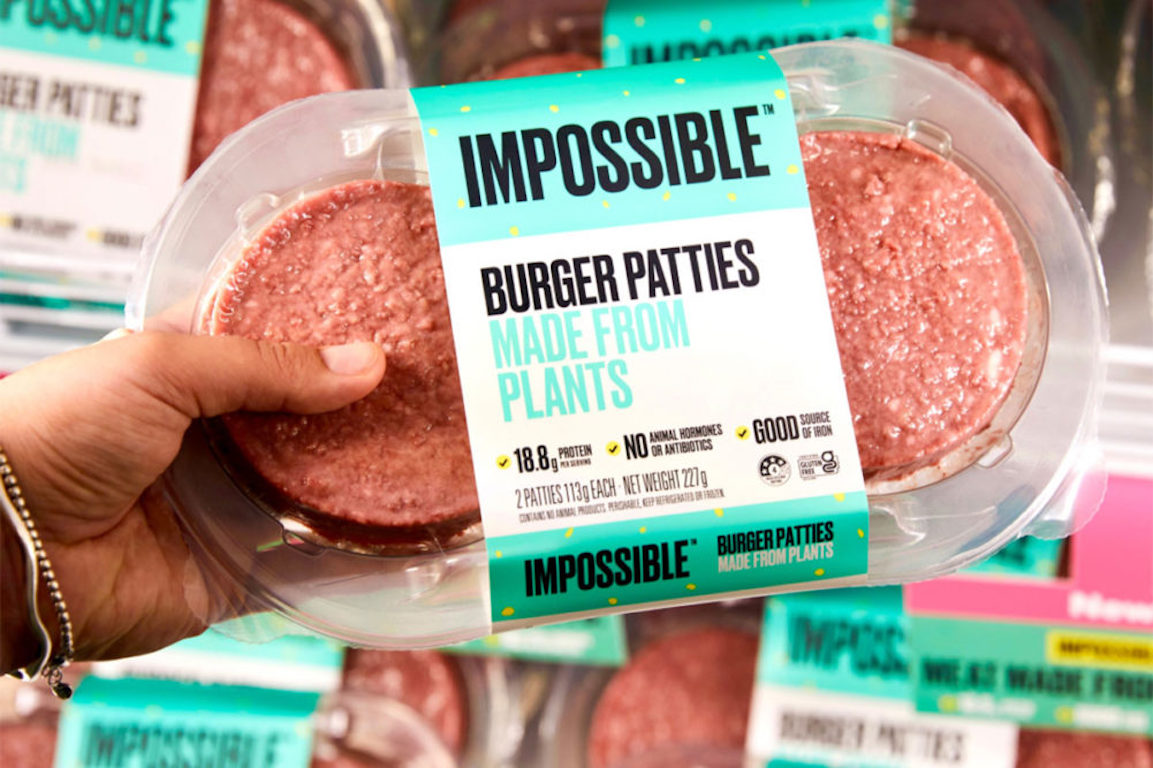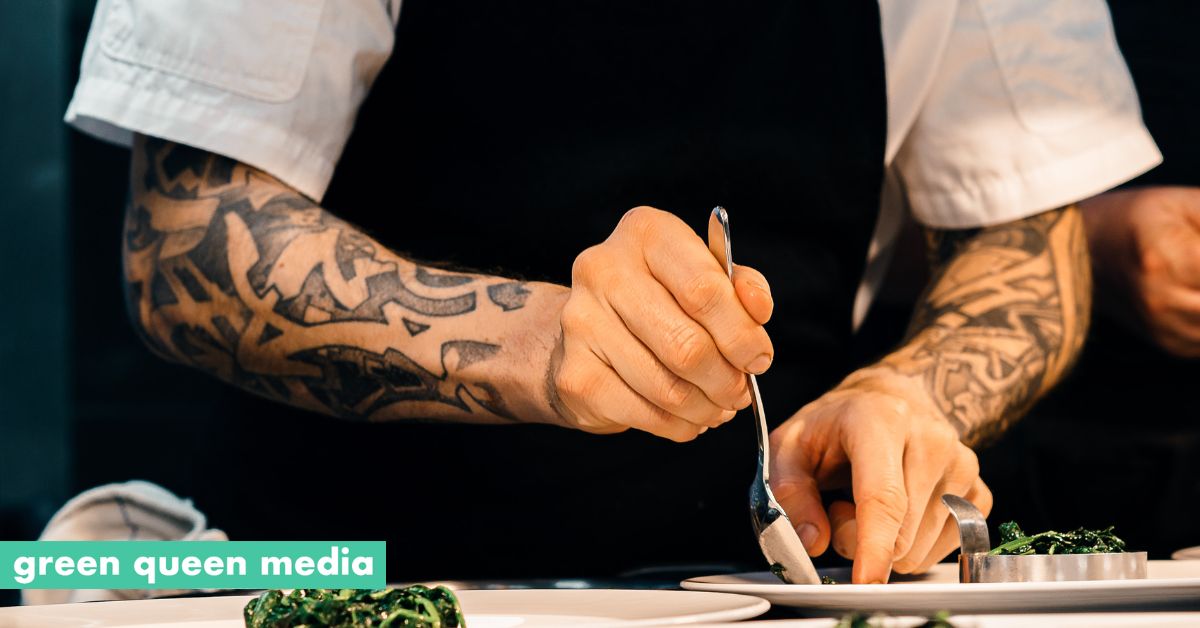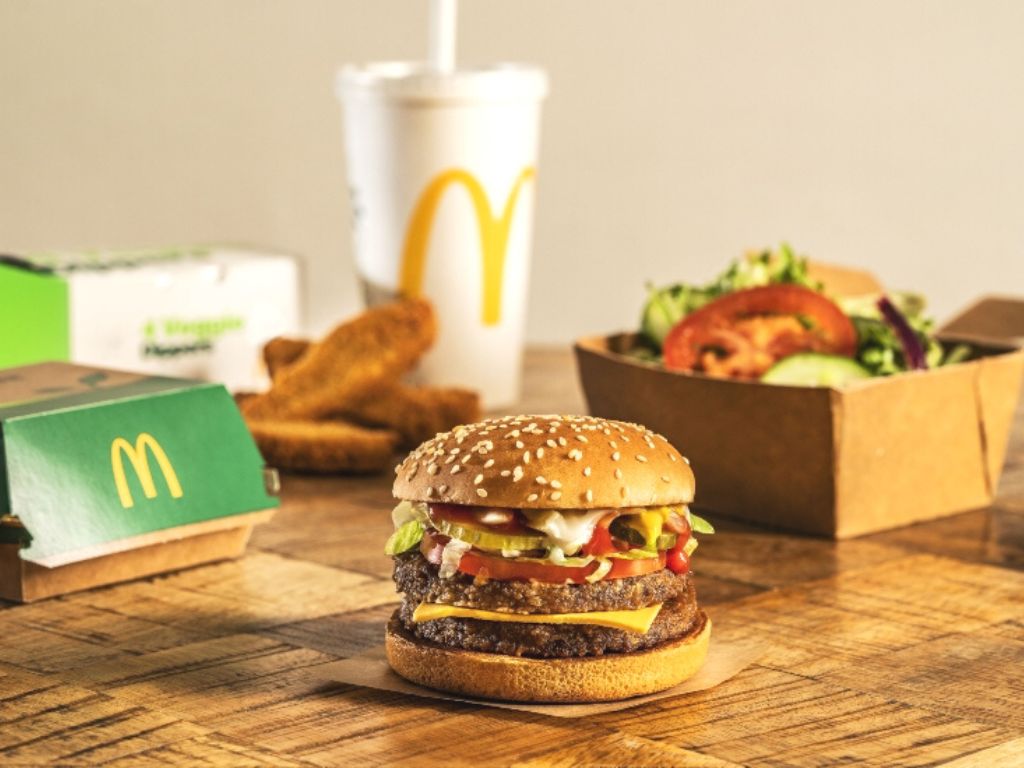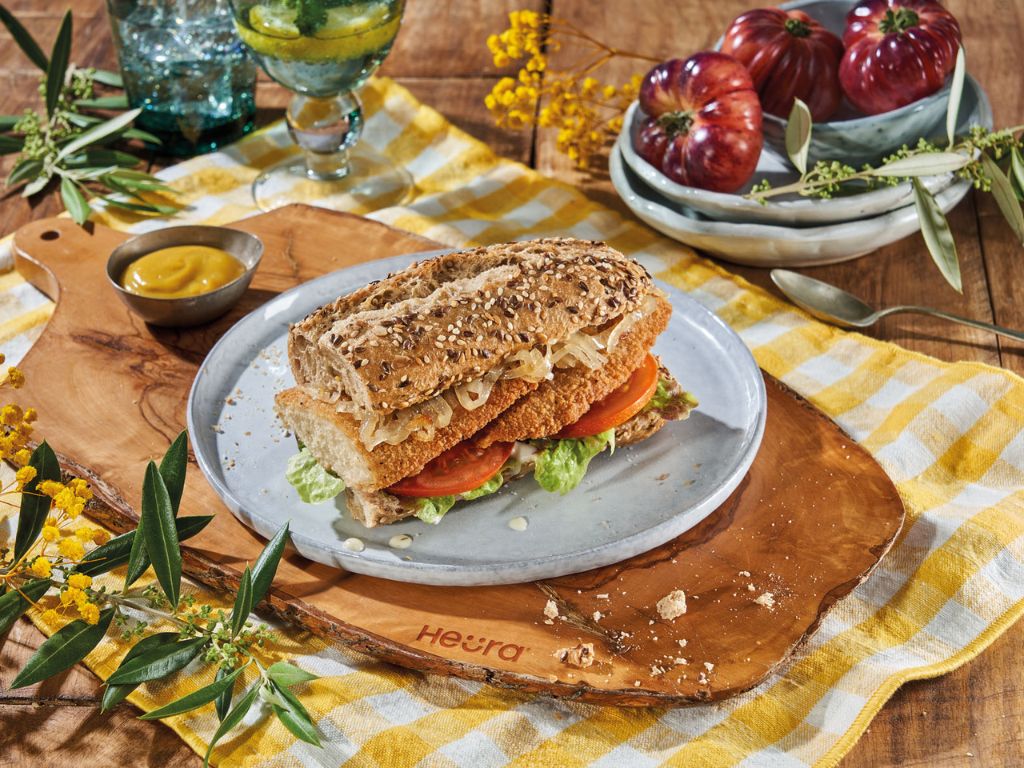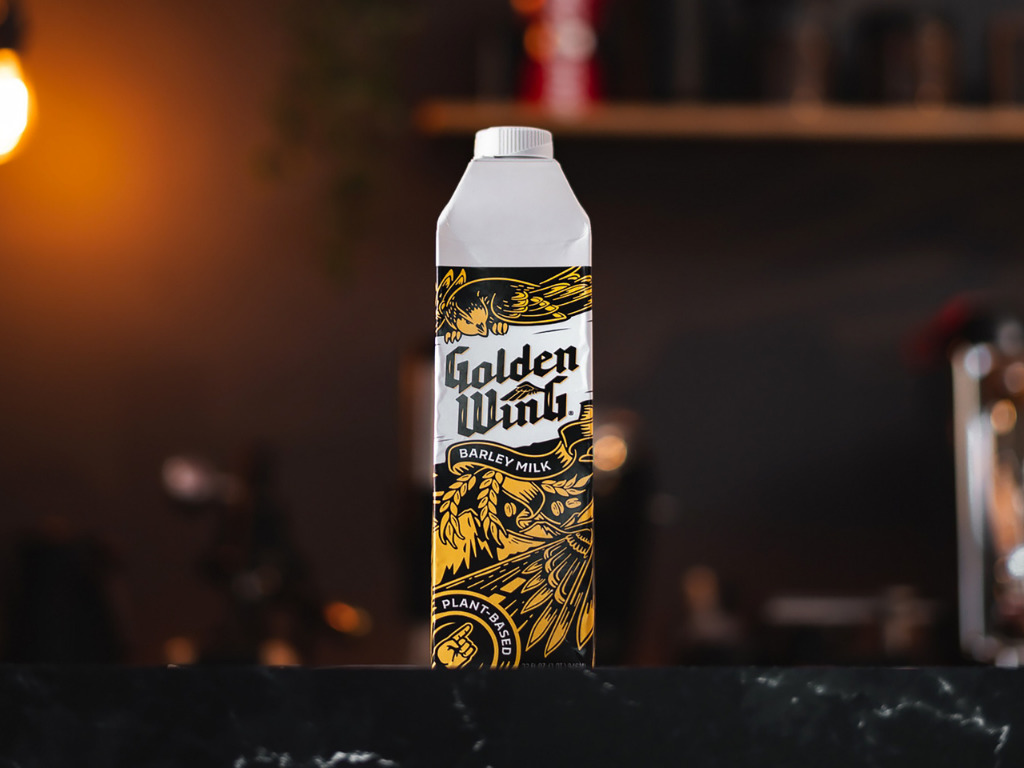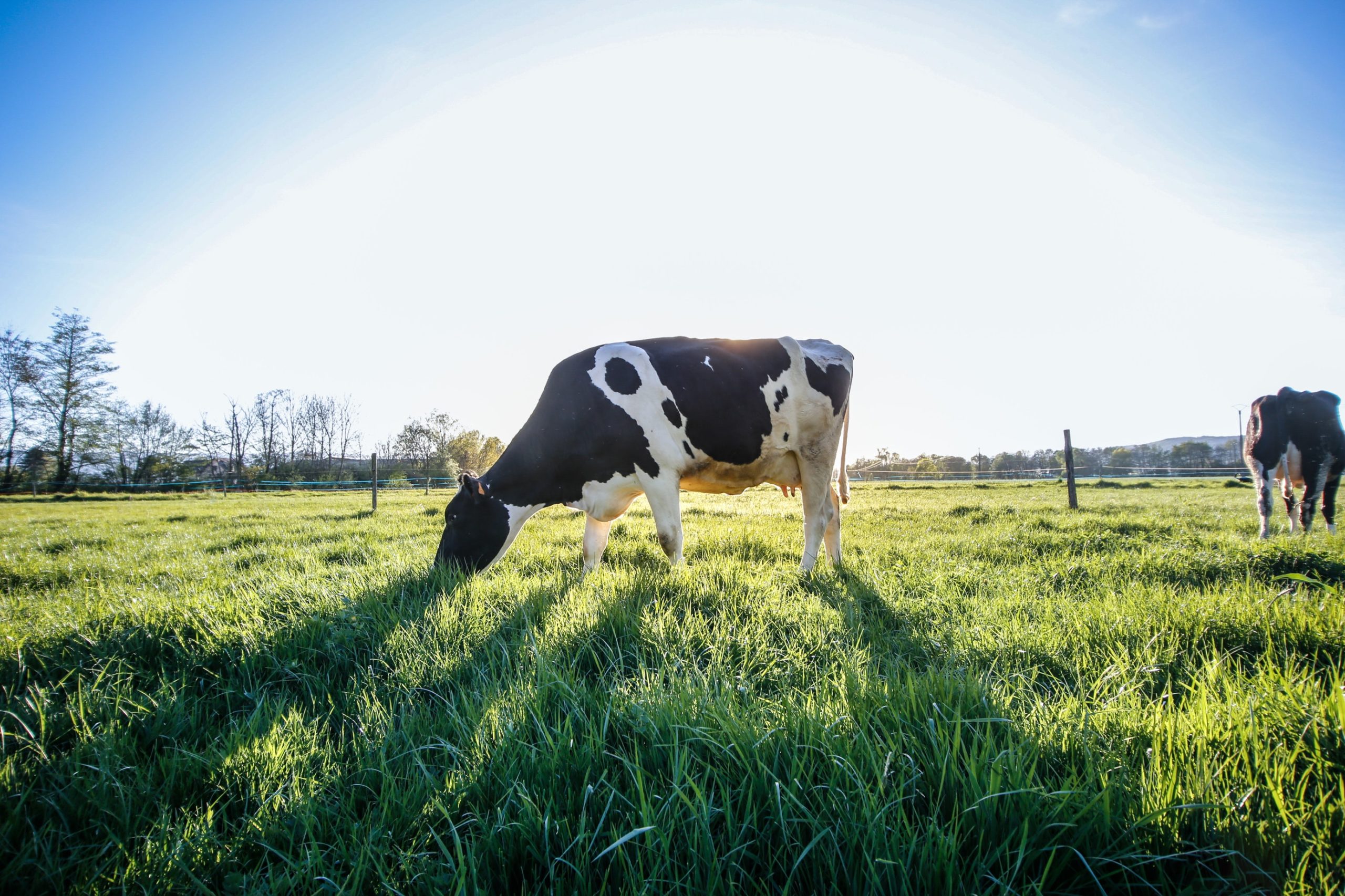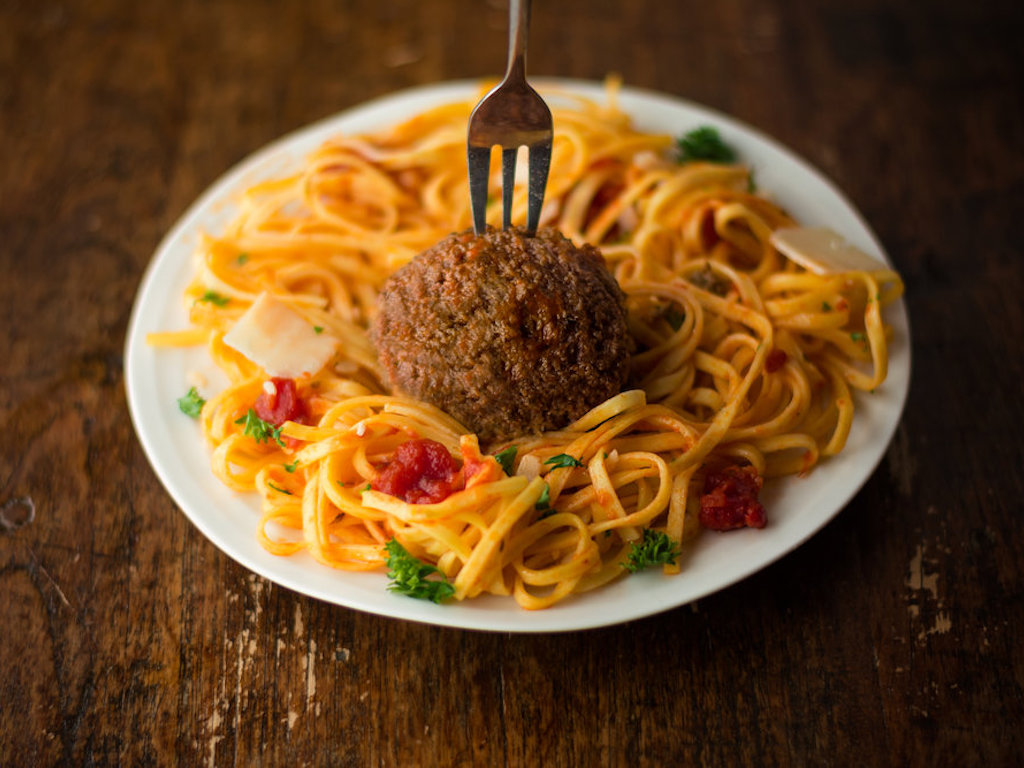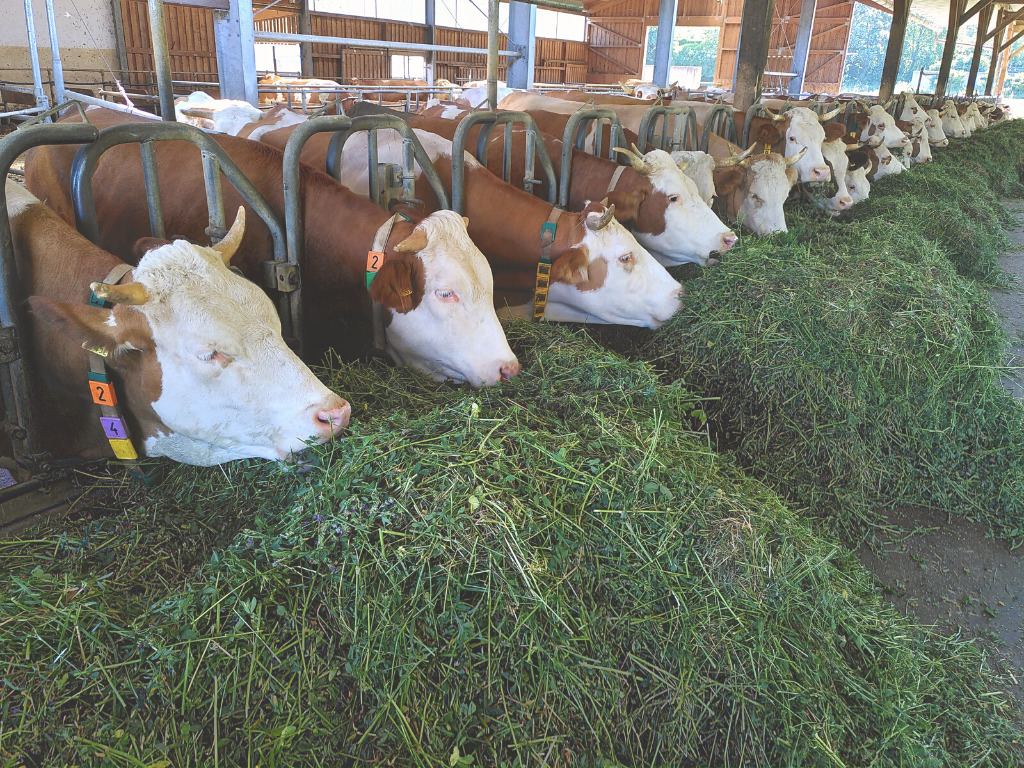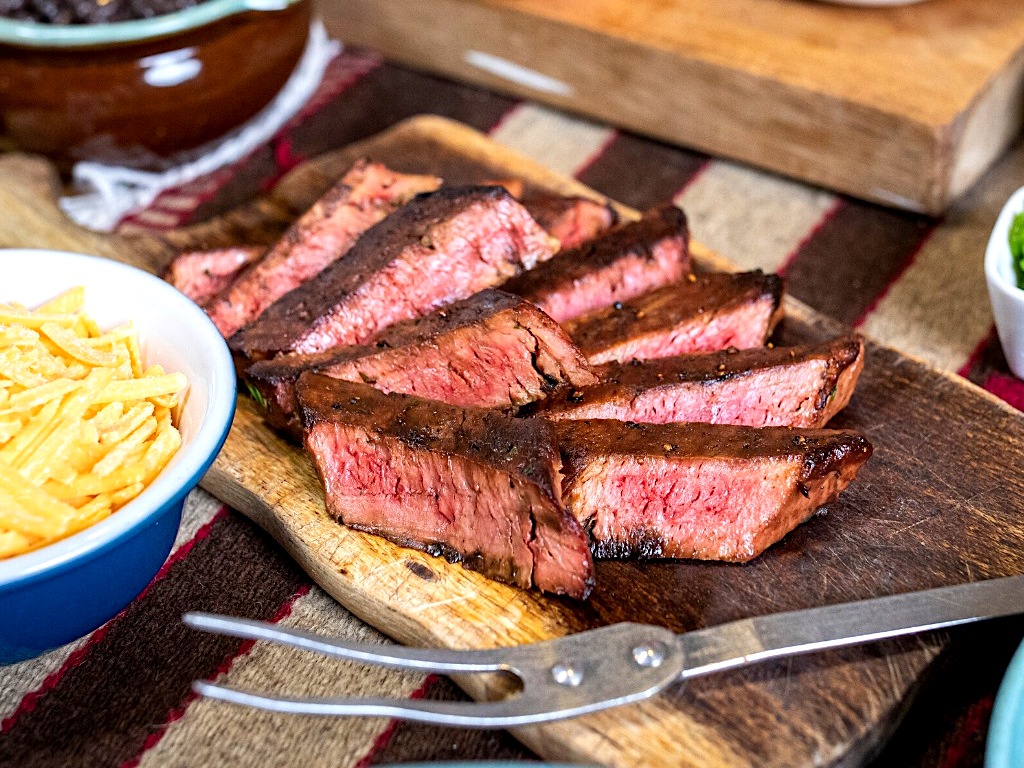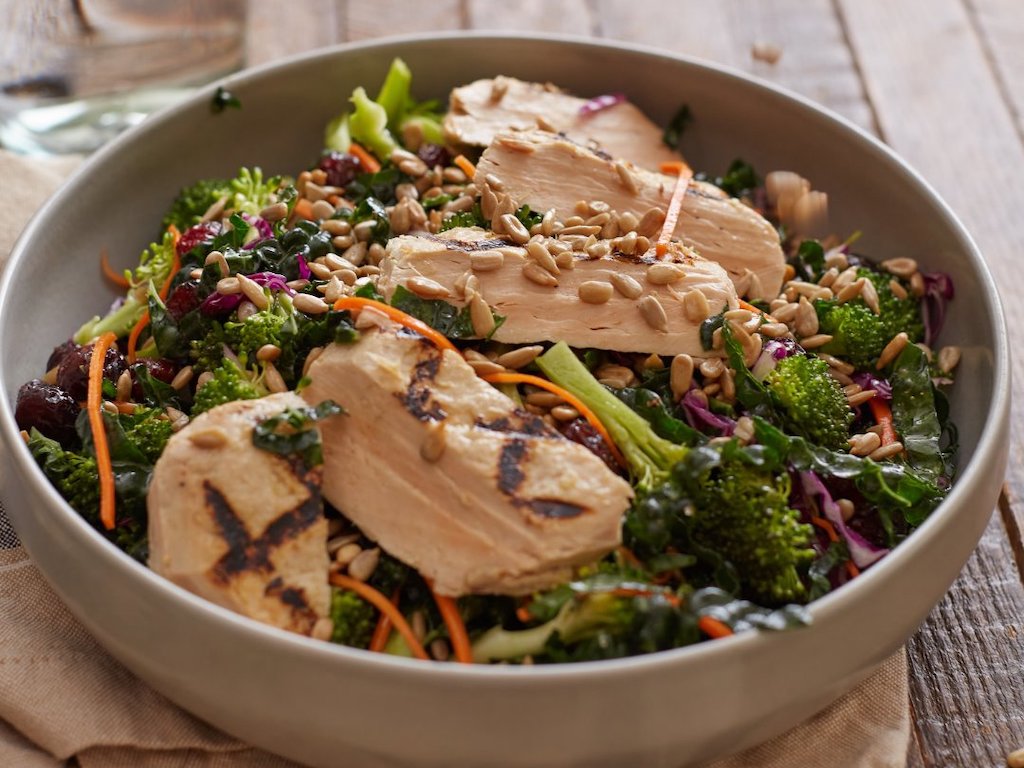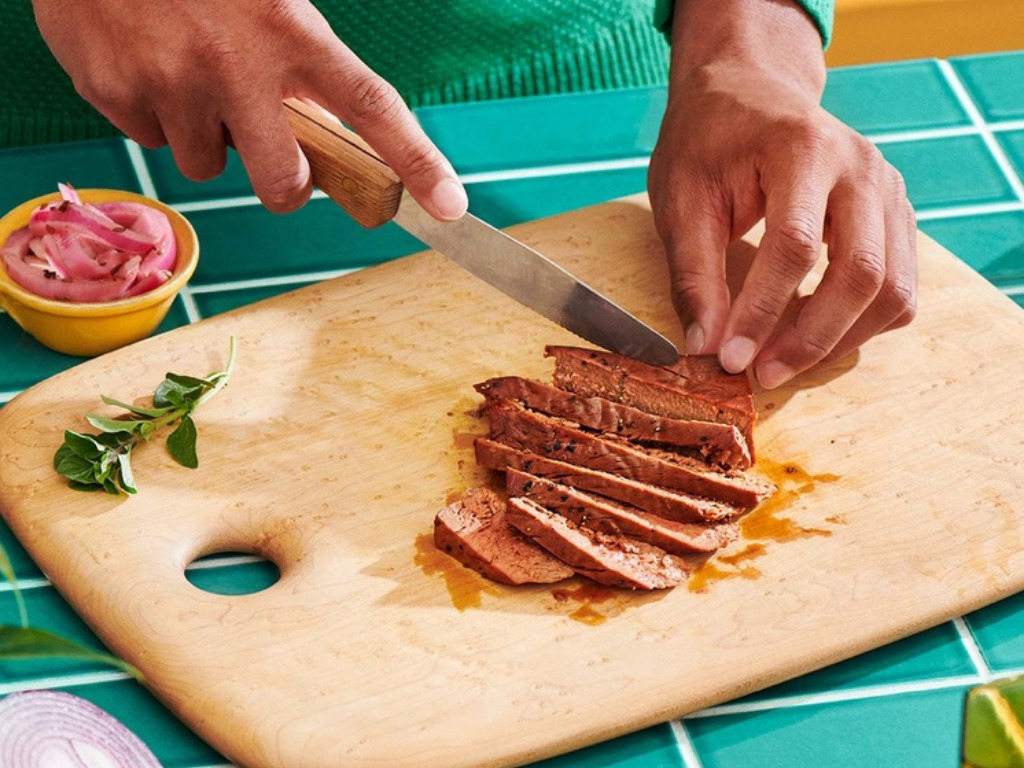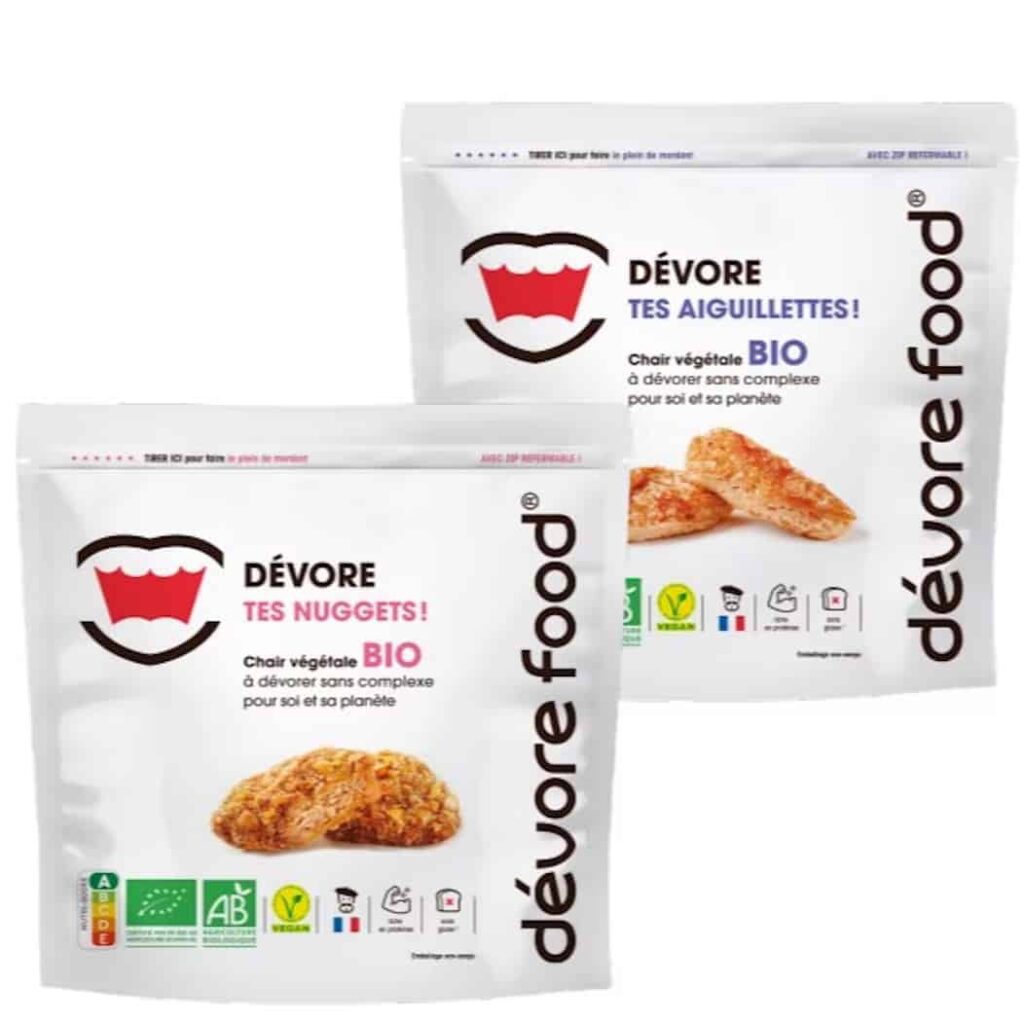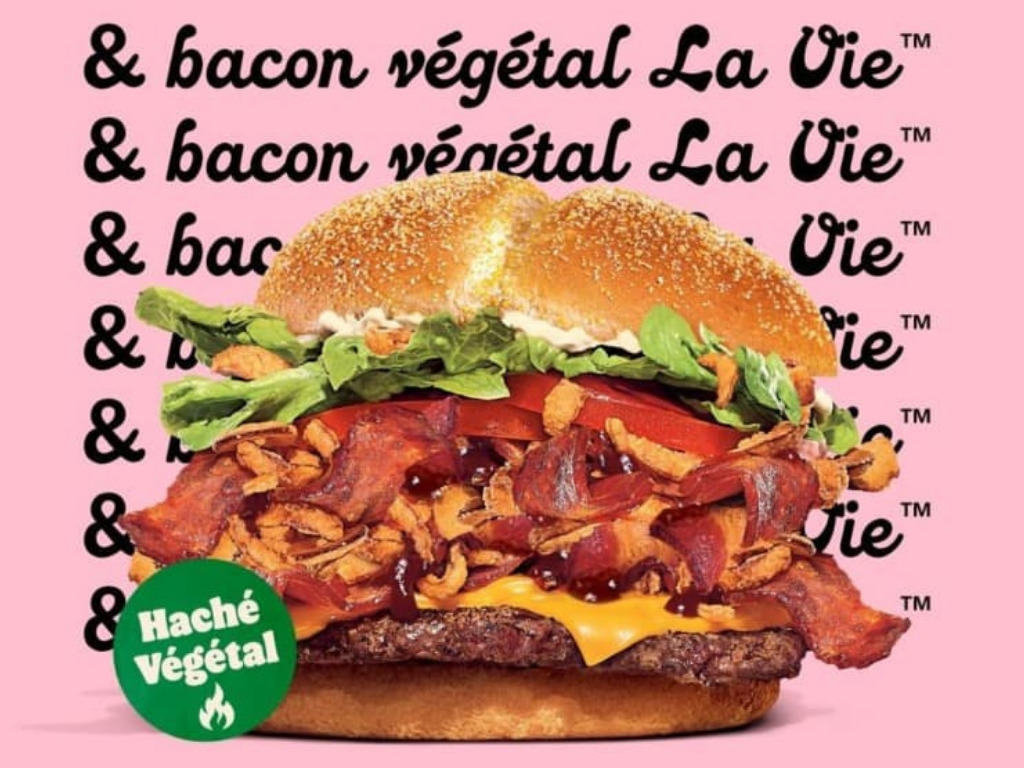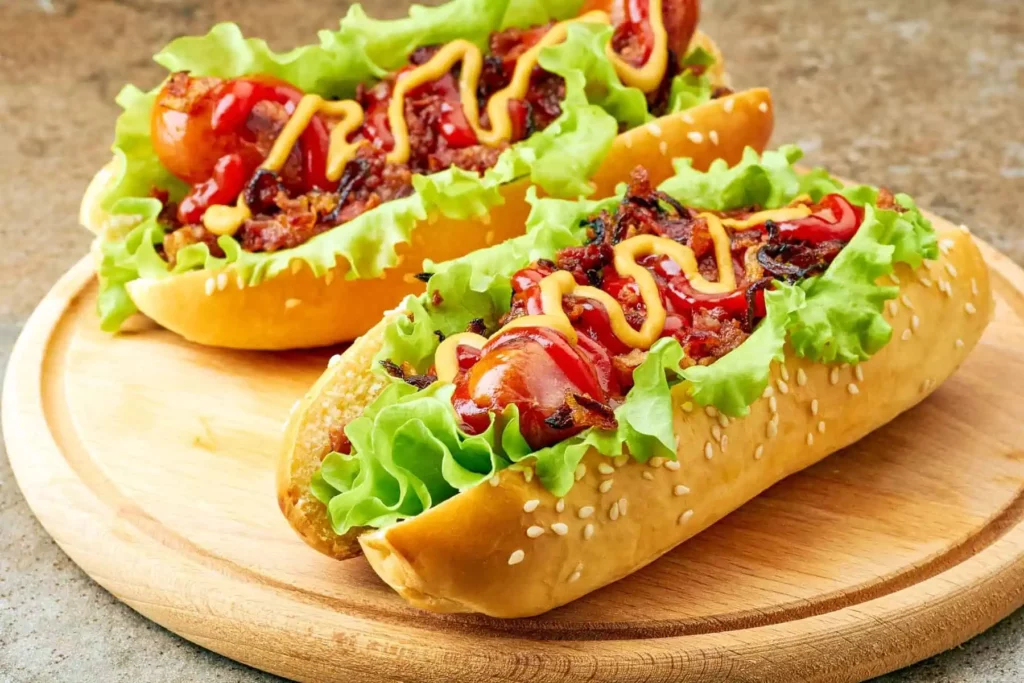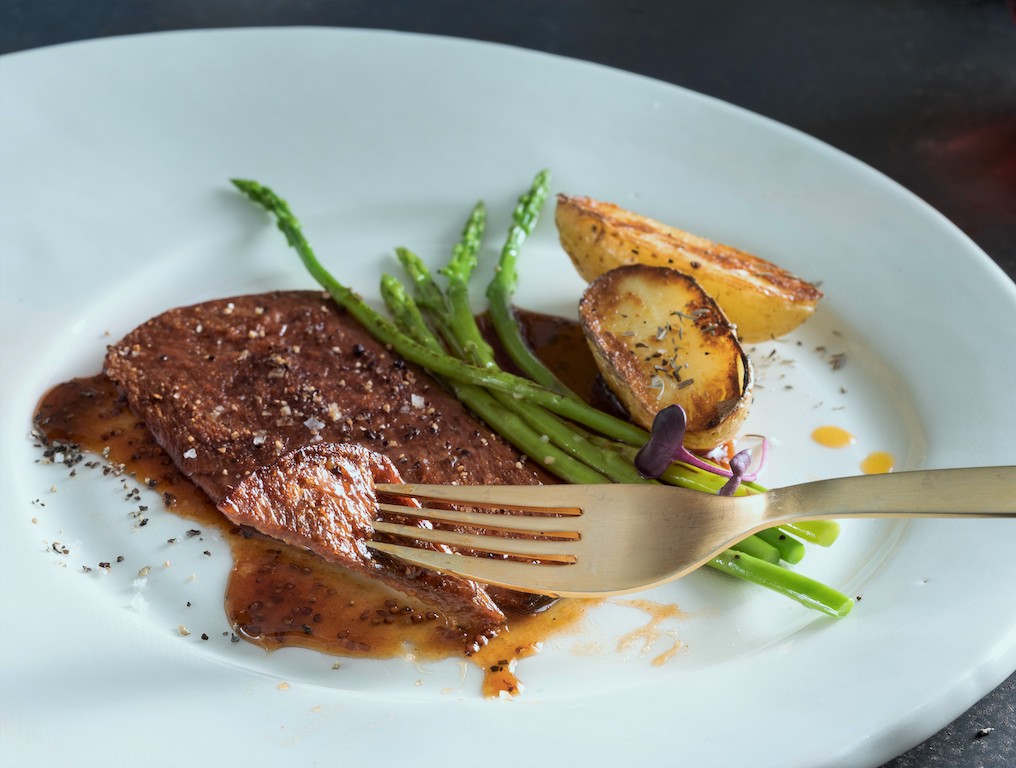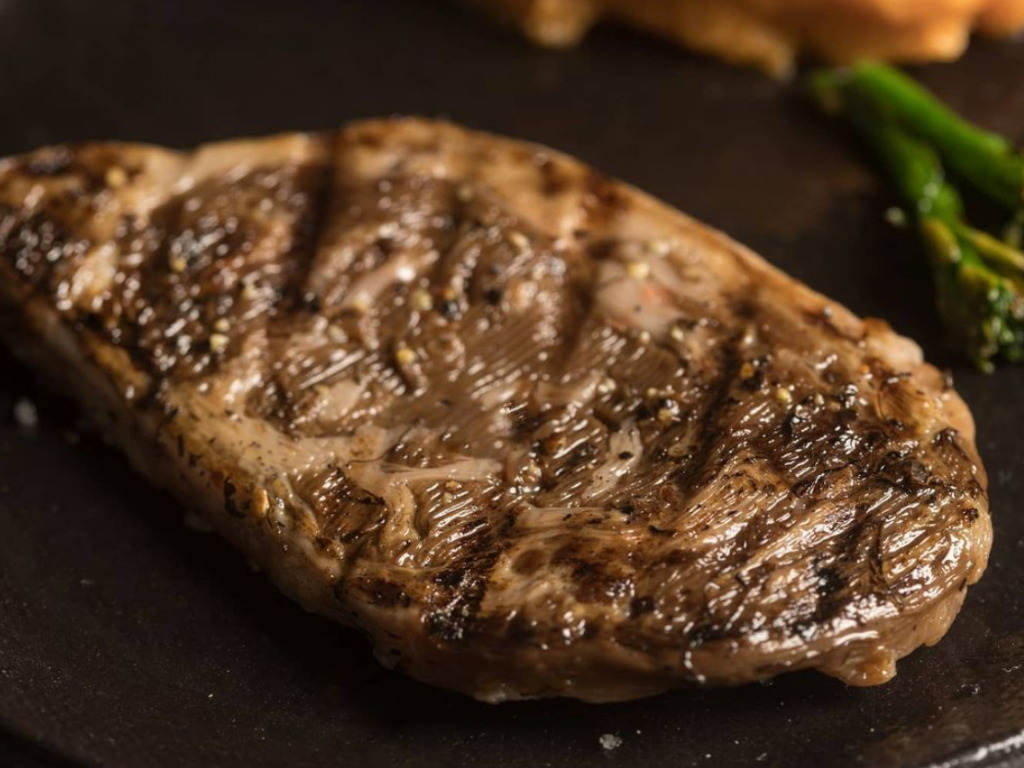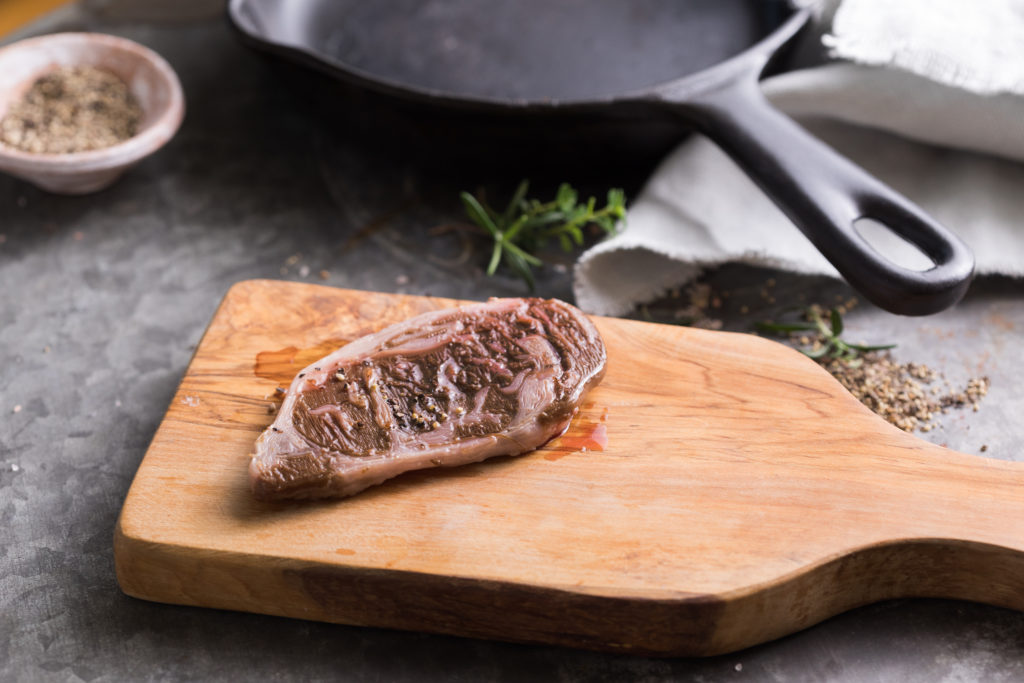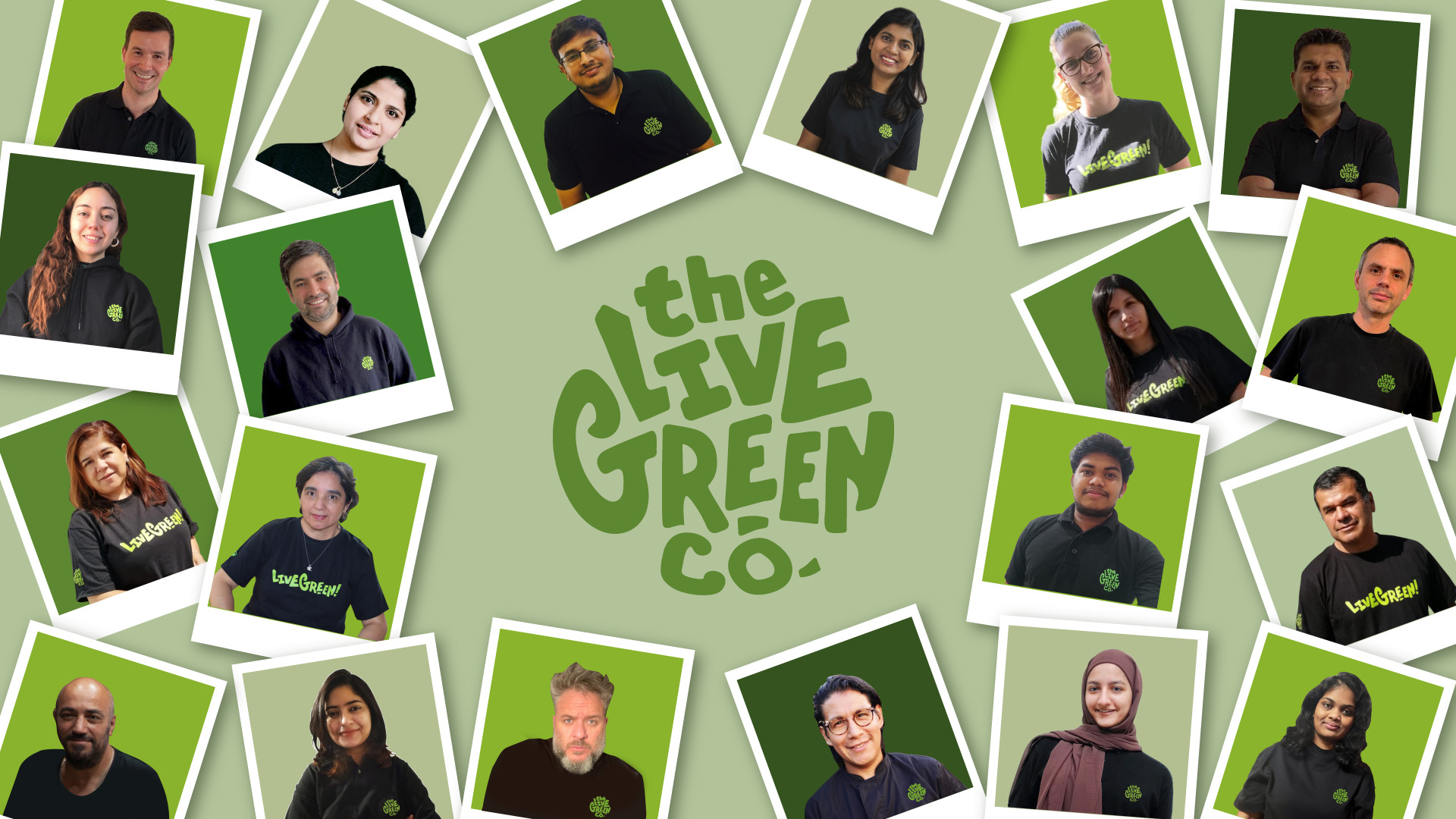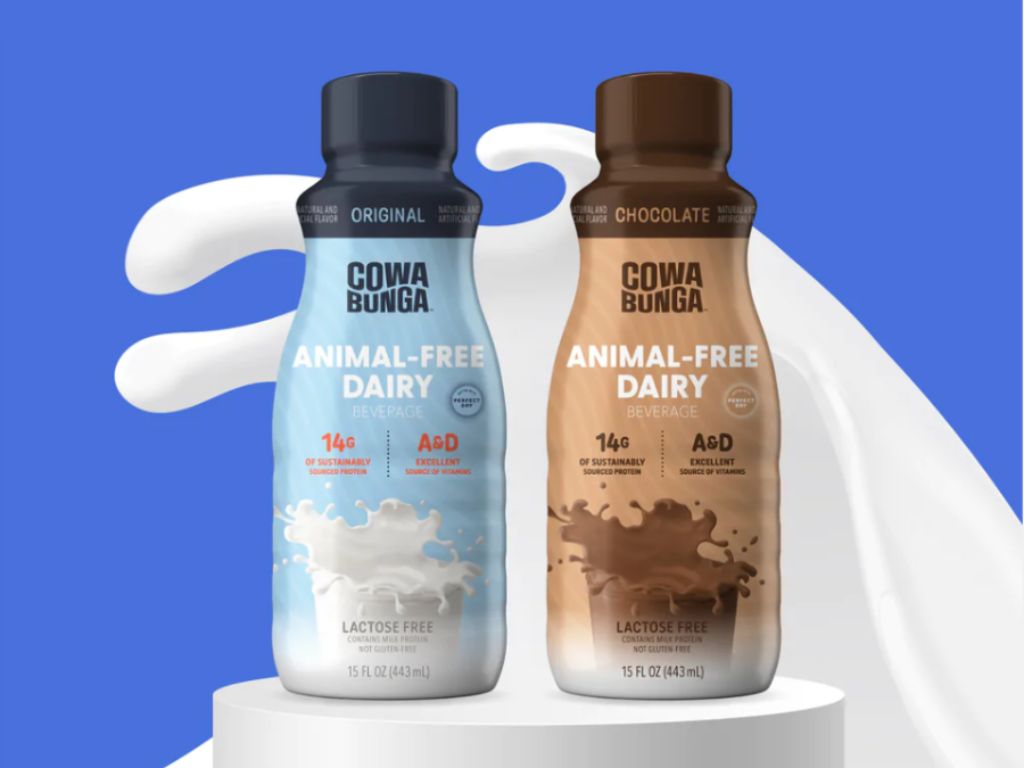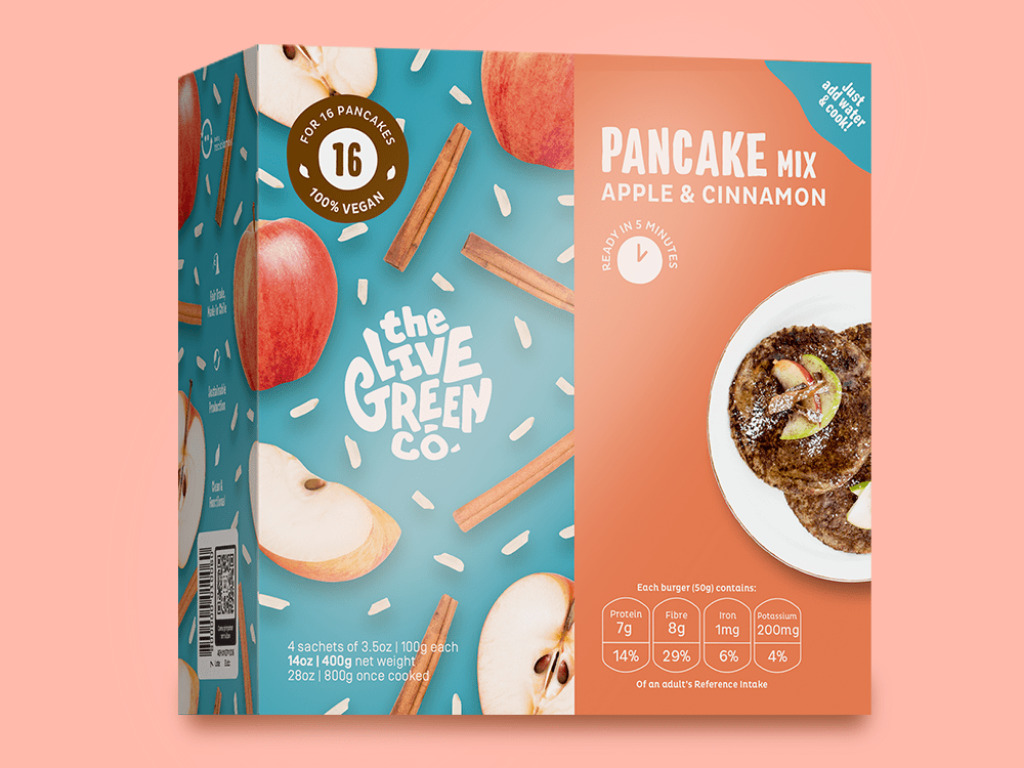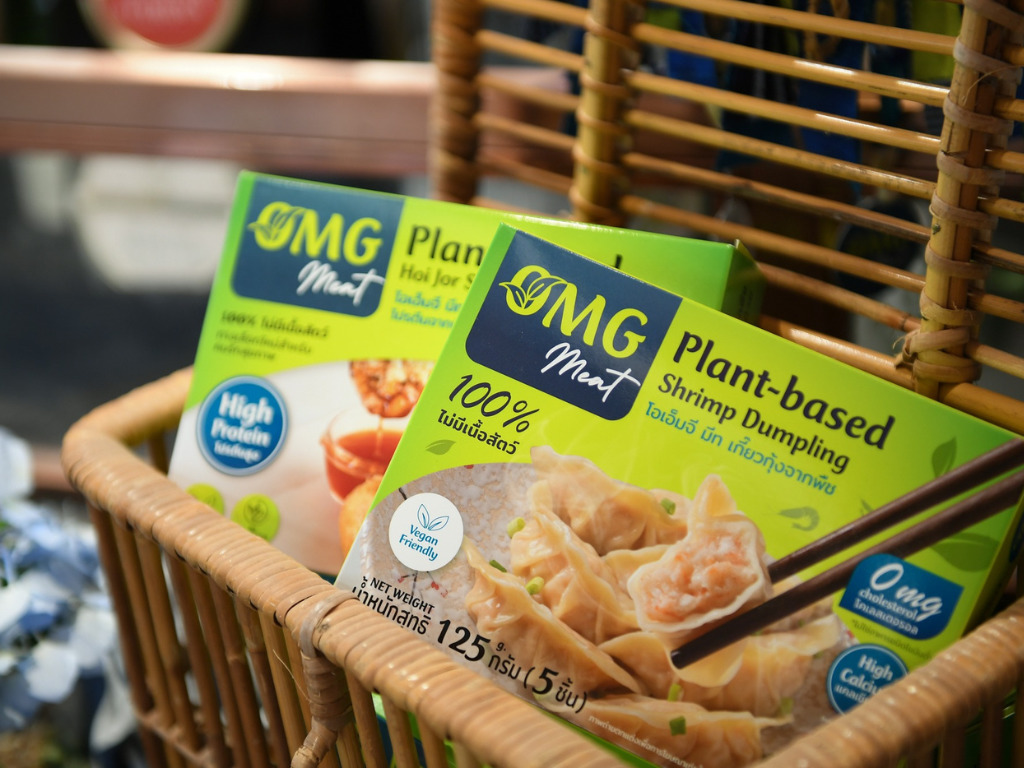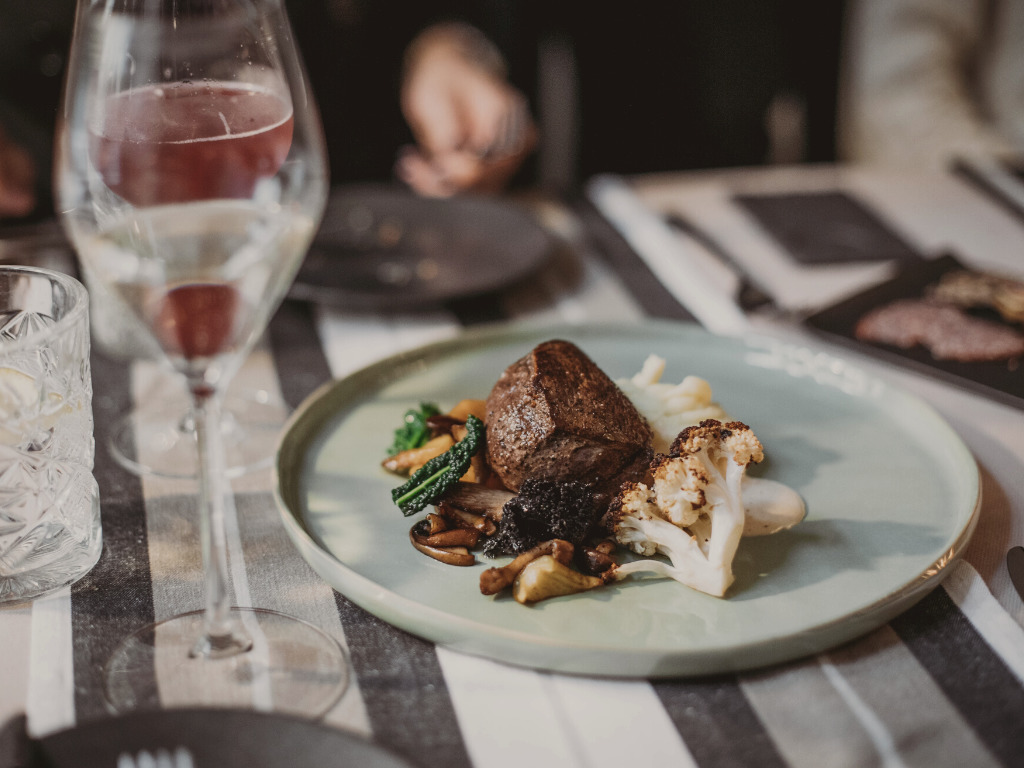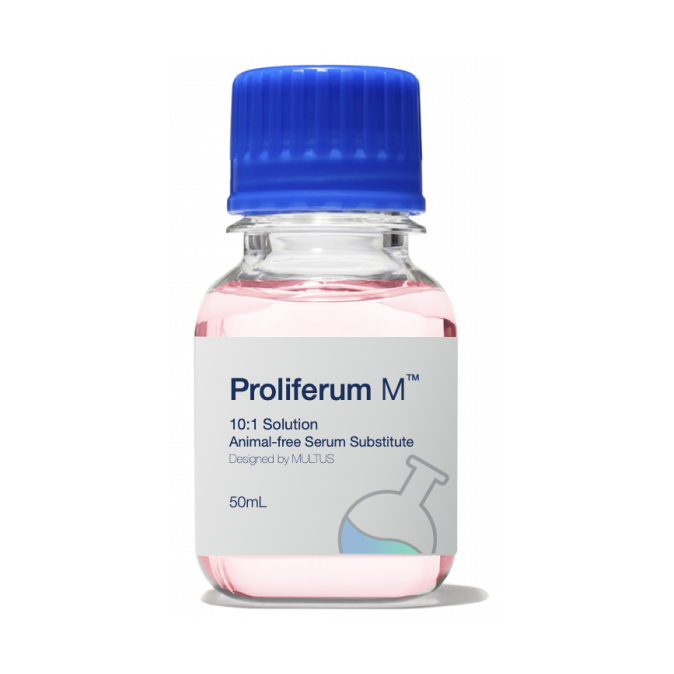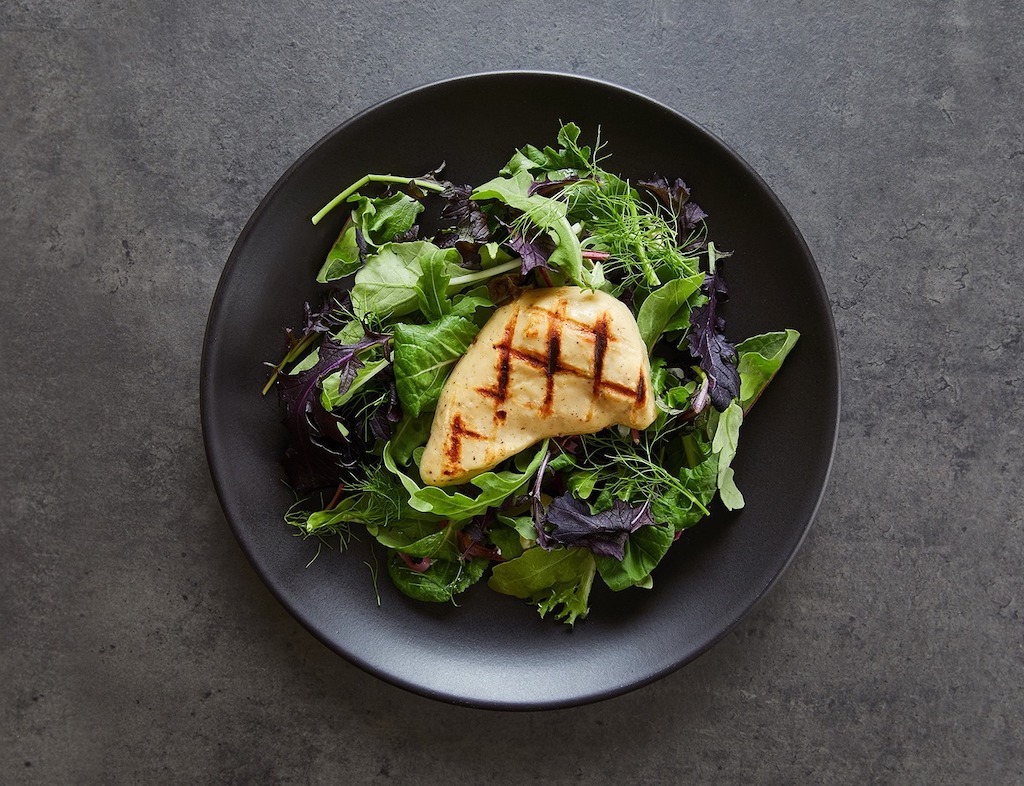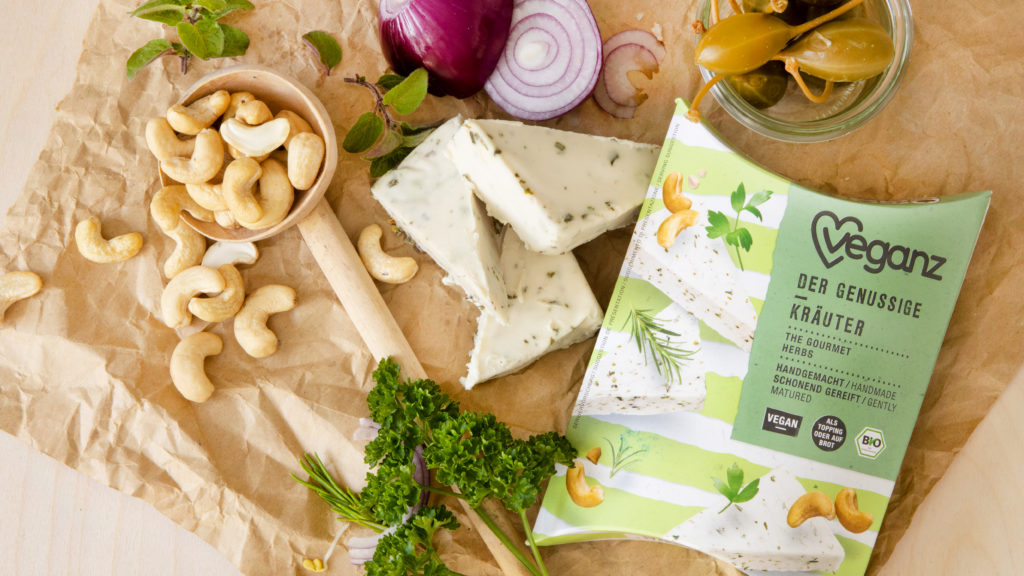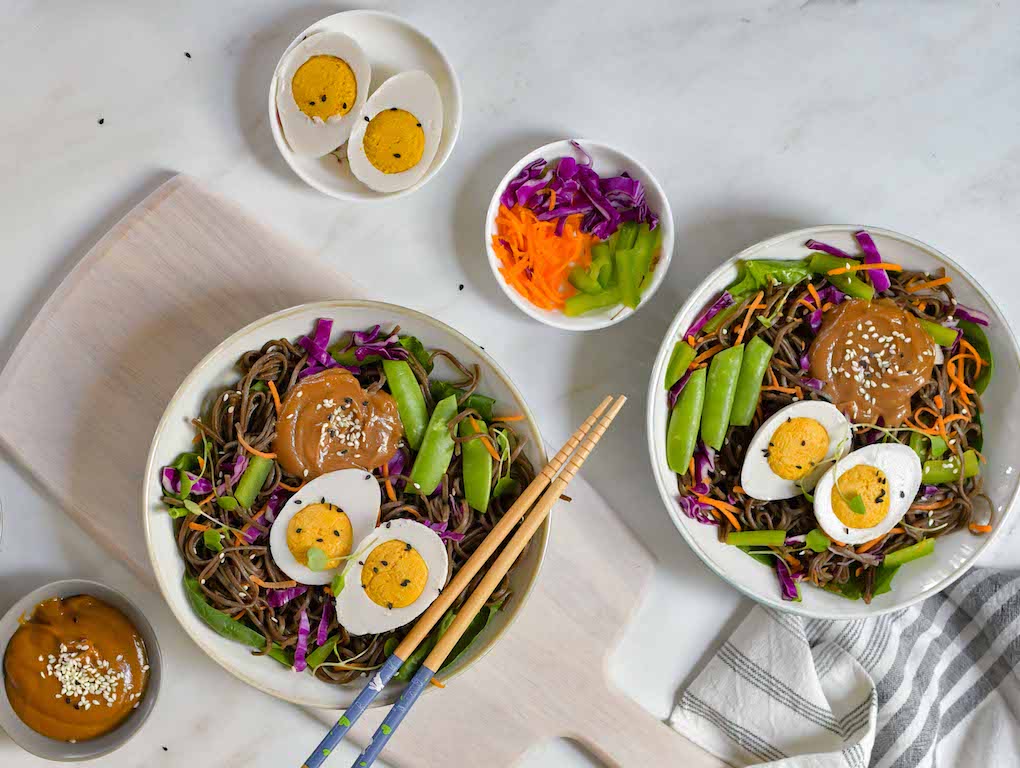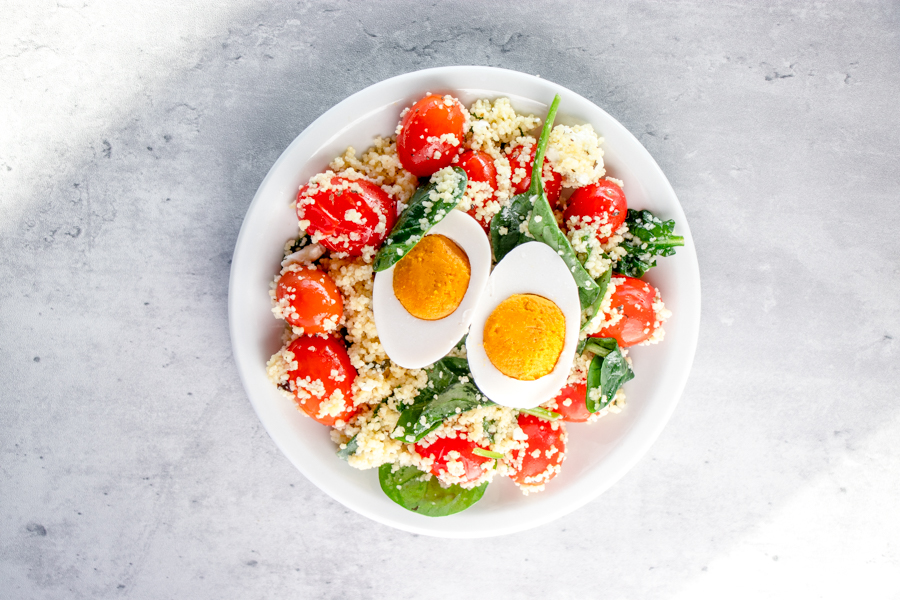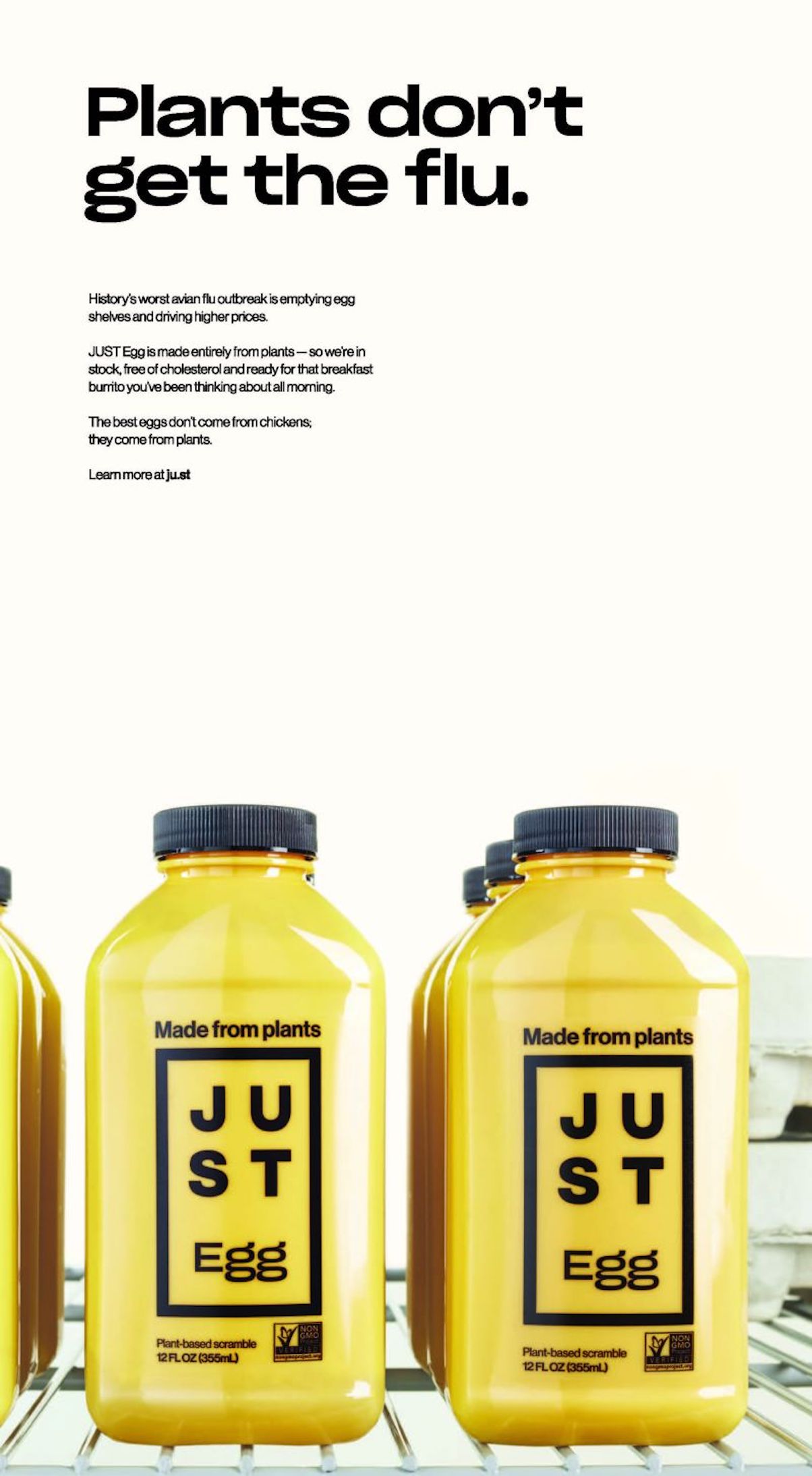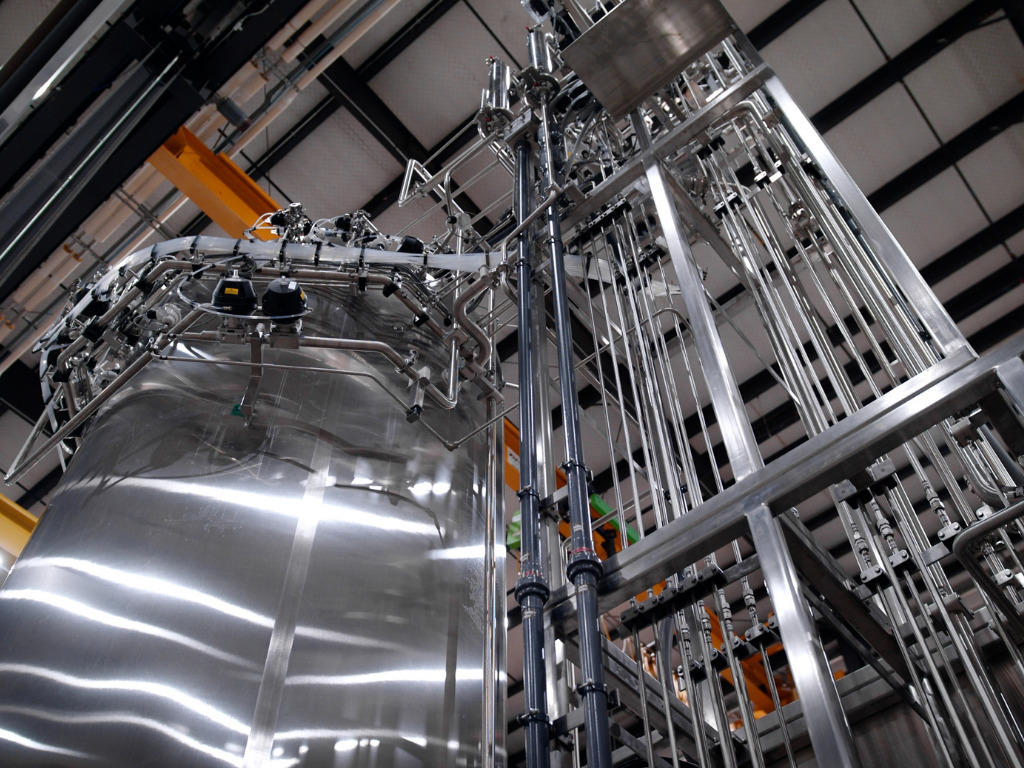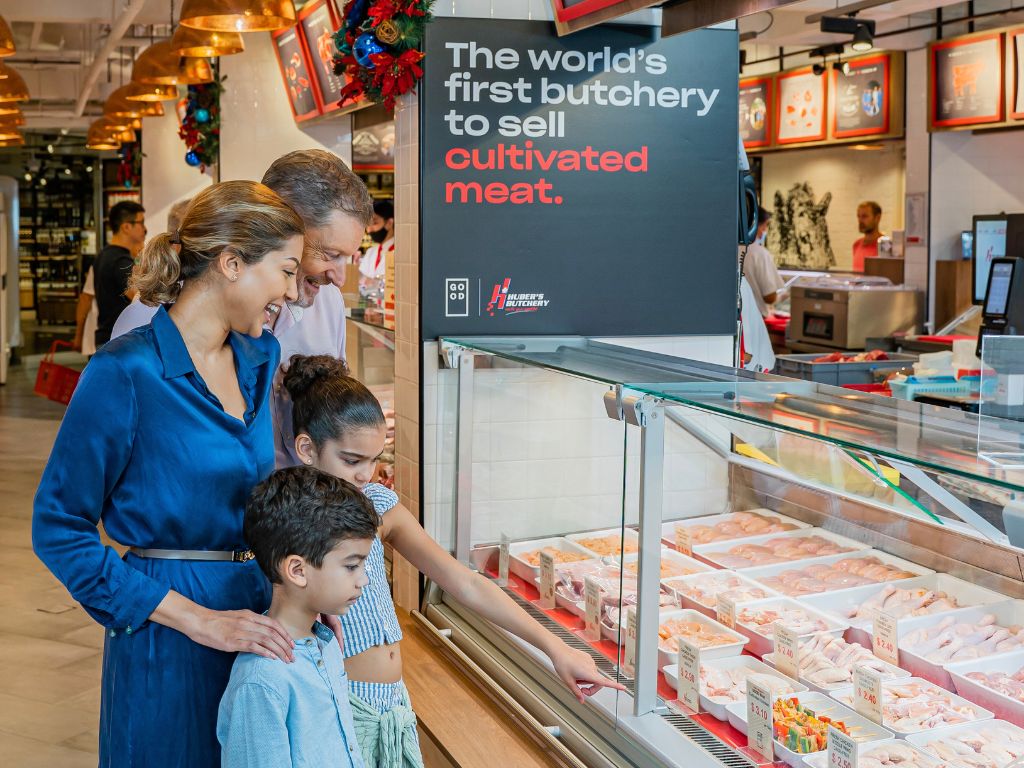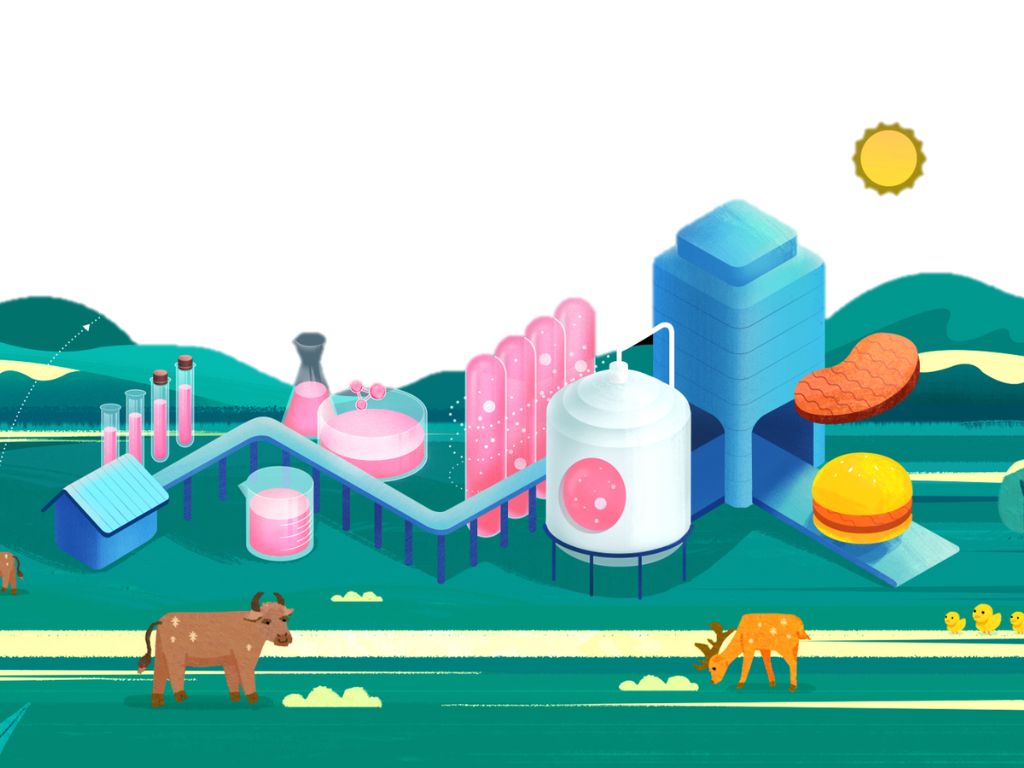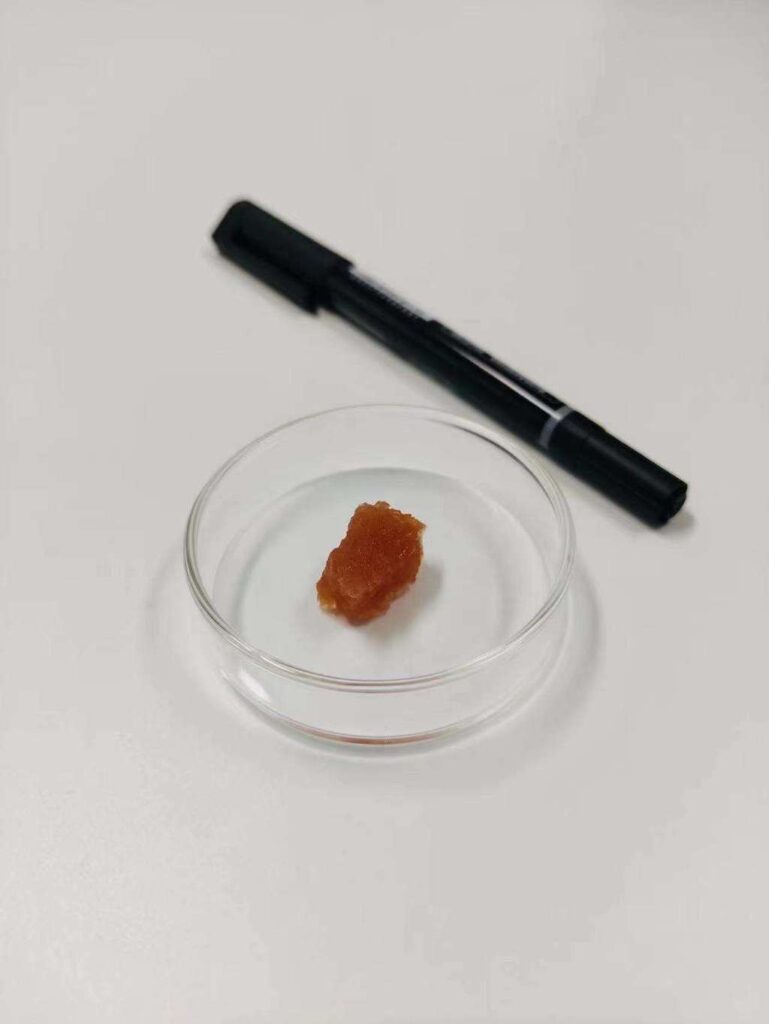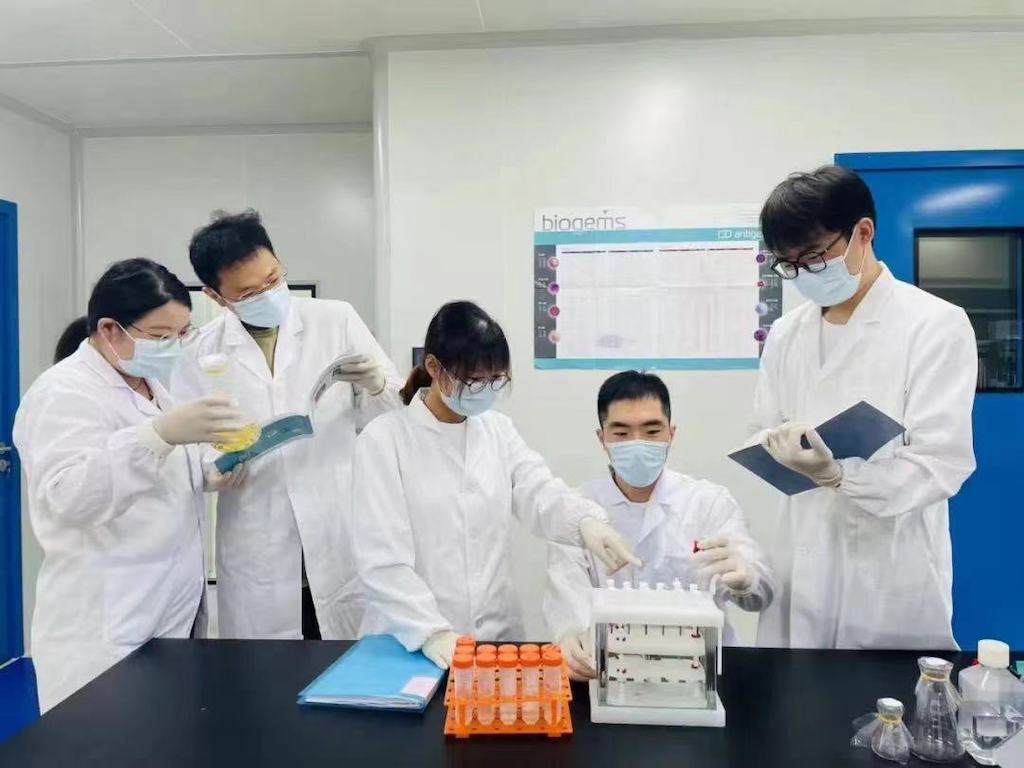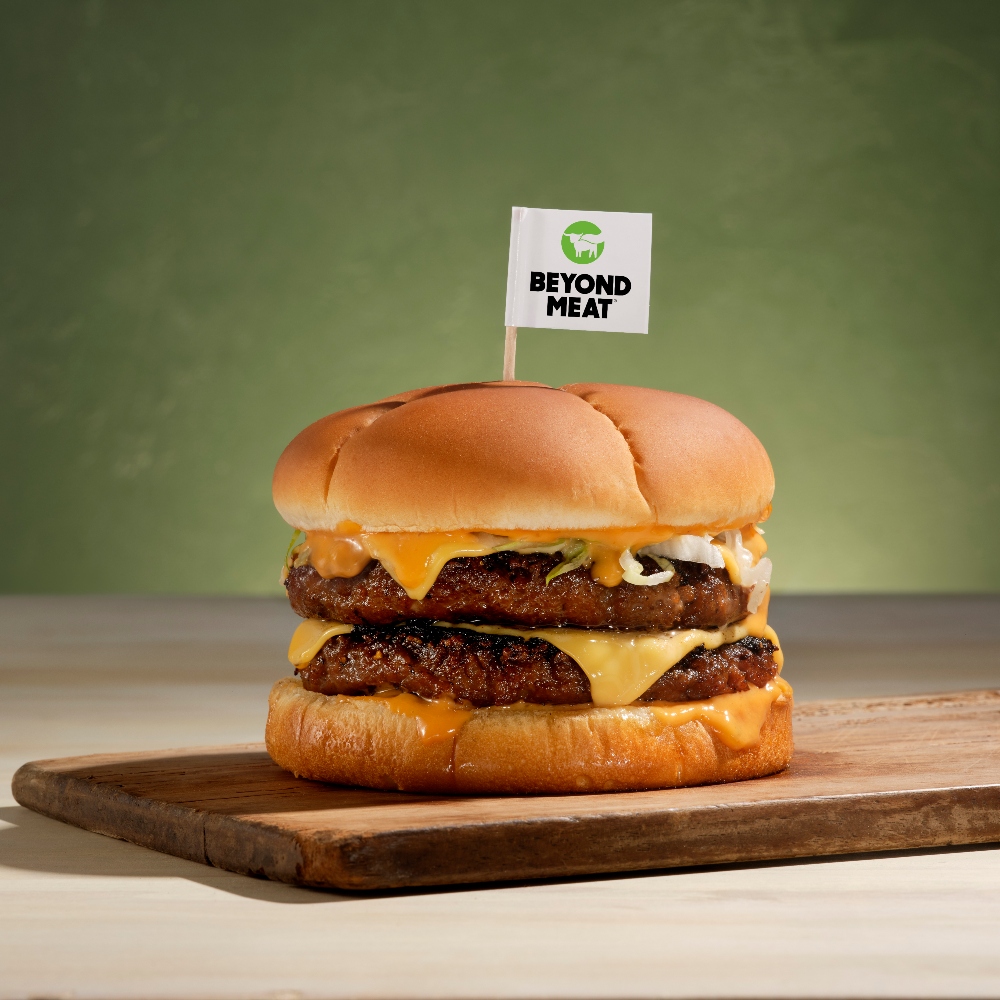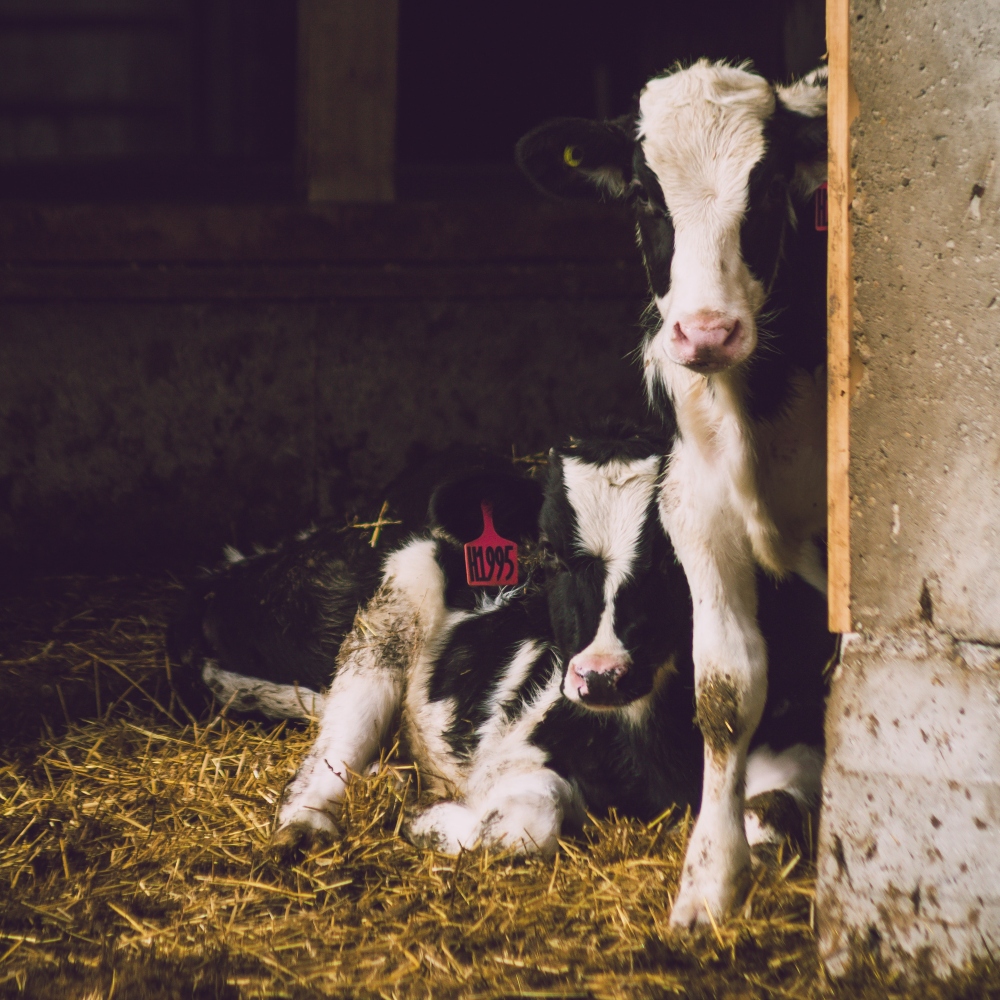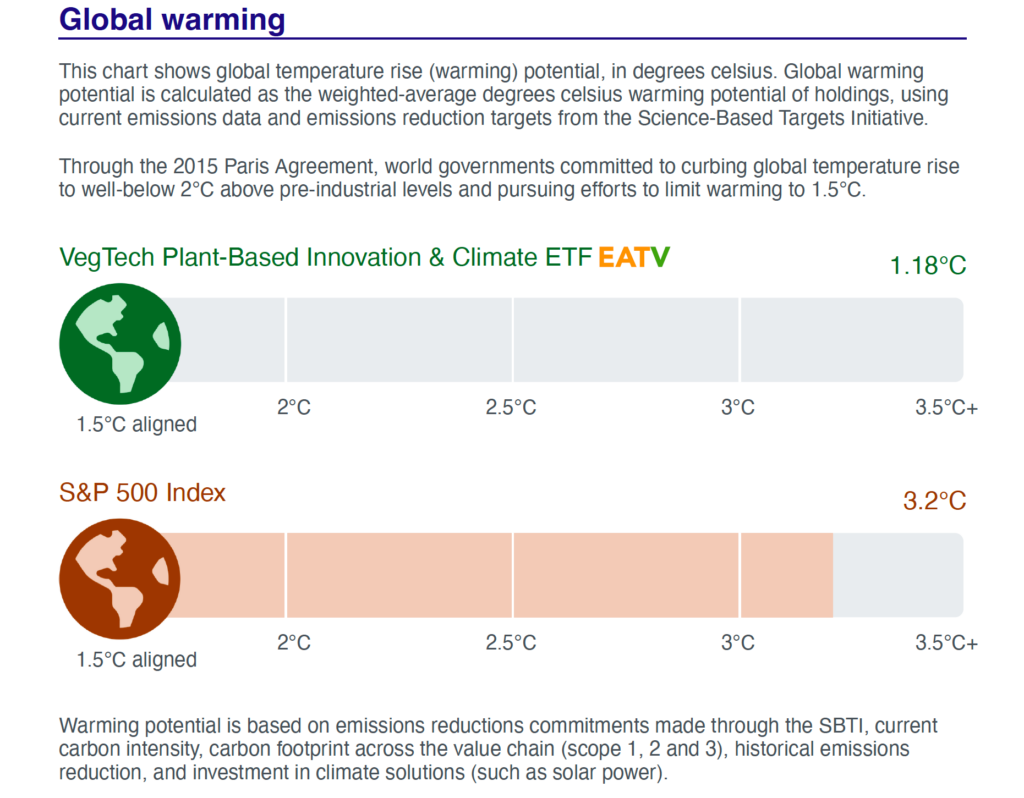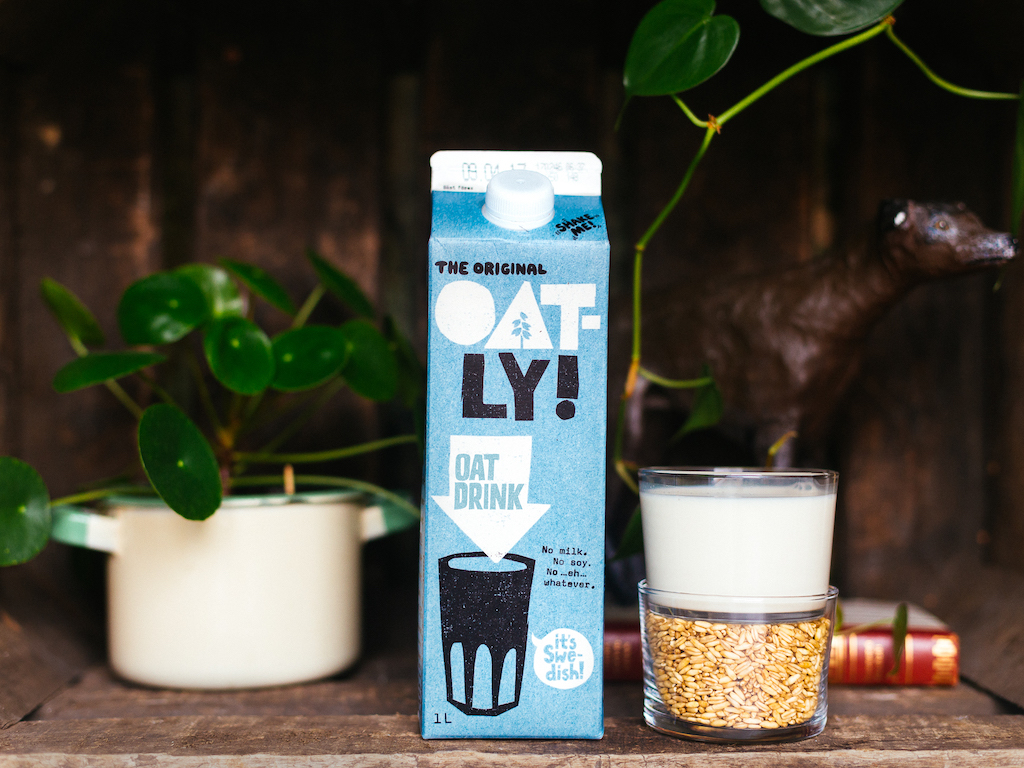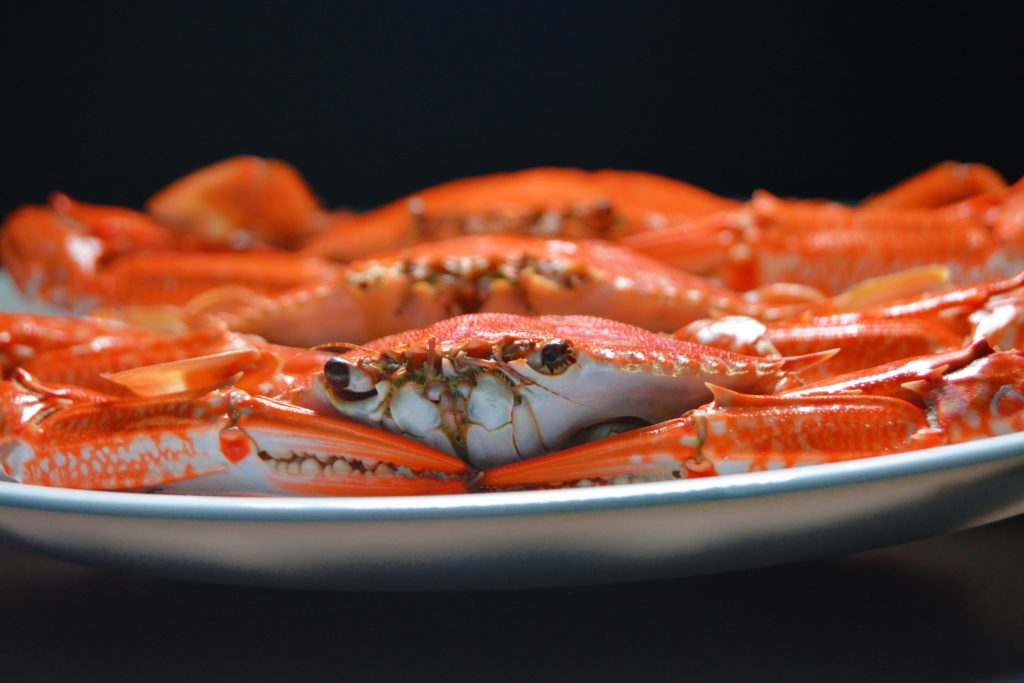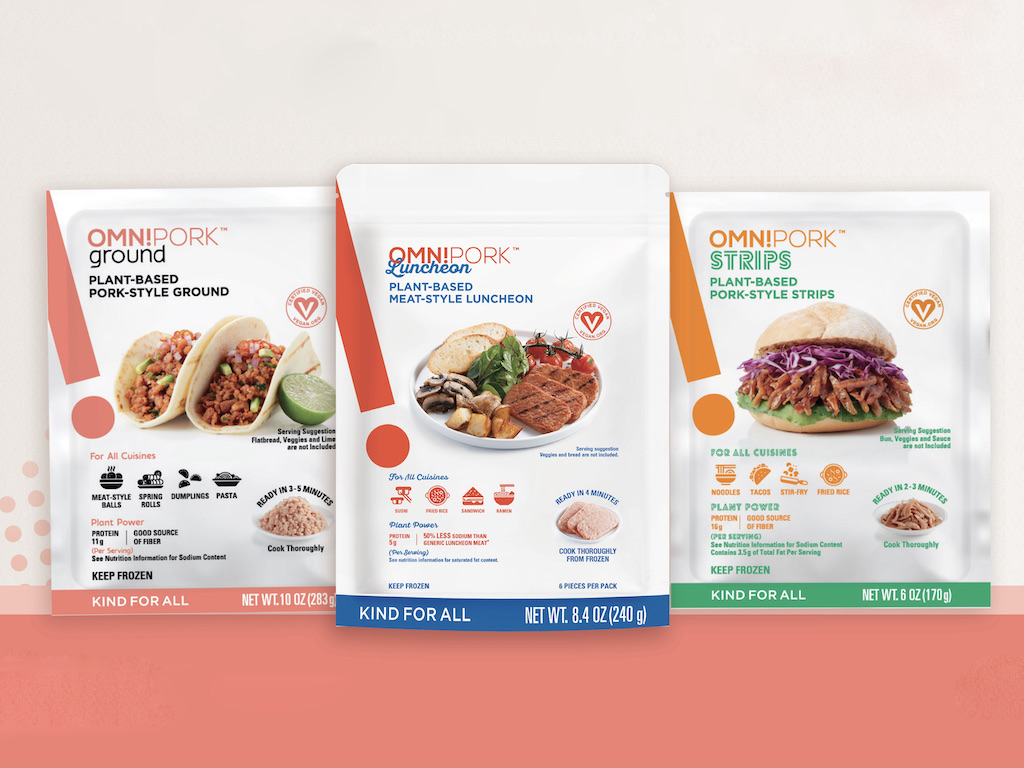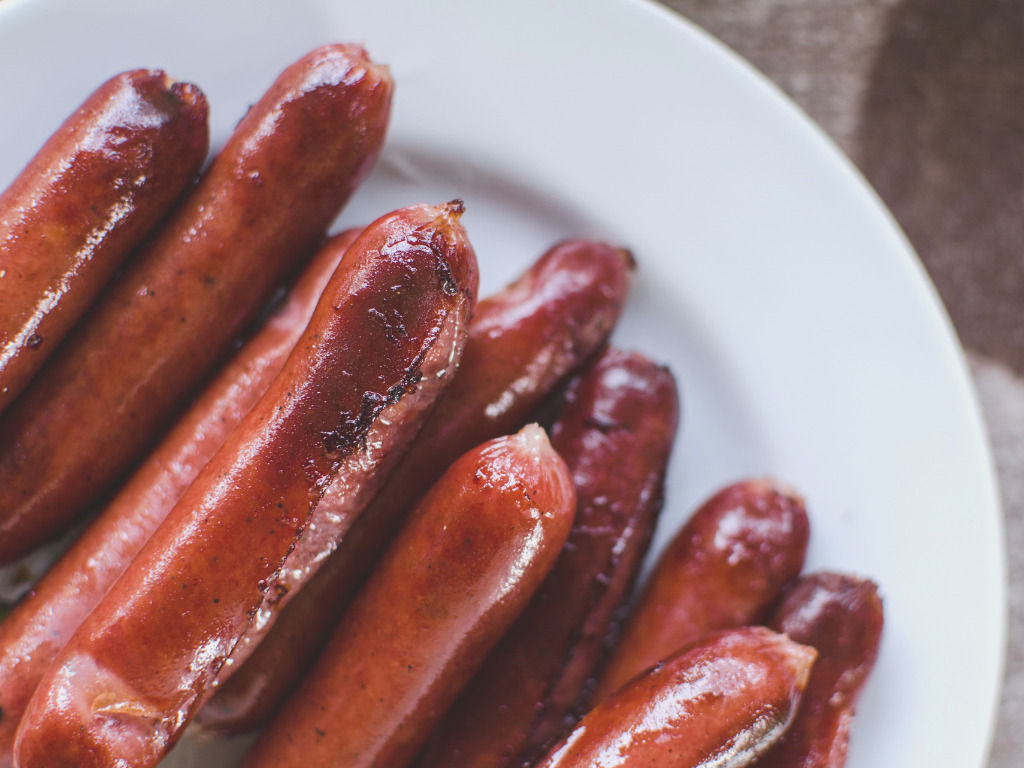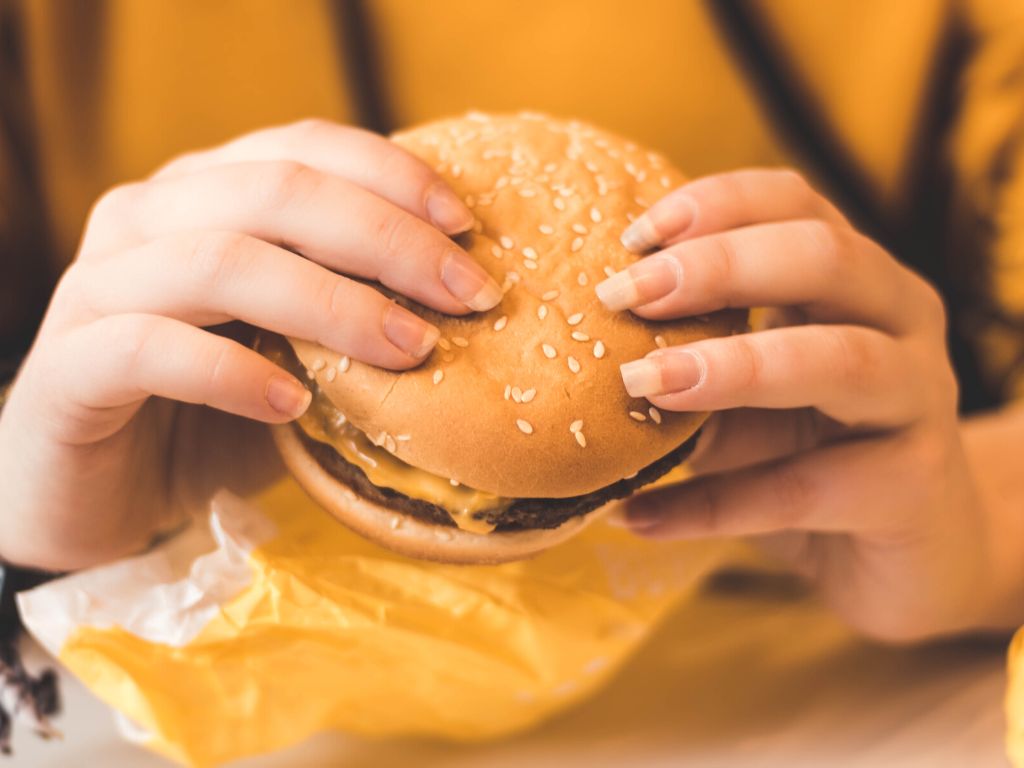
It’s hard to think of someone who holds truth to power as effectively and as committedly as George Monbiot. The multi-award-winning British thinker, journalist, activist, and long-time environmentalist has been speaking out on the ills of capitalism and the climate crisis for almost 40 years, during which he has been attacked, arrested and shot at. Among the subjects that he has taken on throughout his storied career as an investigative journalist and as a Guardian columnist (a gig he started in 1996!) are indigenous land appropriation, neoliberalism and political corruption, and epidemic loneliness.
In his latest book Regenesis: Feeding the World without Devouring the Planet, he tackles our current food system crisis and explores the billion-dollar question of how to sustainably feed a growing global population without destroying our planet’s natural resources and exacerbating climate change.
Below, he talks to Green Queen‘s Sonalie Figueiras about why talking about food system change is so controversial, food tech and the S curve, the ‘mind-blowing’ alt protein products he has tasted, how to deal with Big Food lobbies, whether government regulation matters and what gives him hope after so many years of tireless activism.
Editor’s Note: This interview was recorded live on Wednesday, February 1st 2023 during the City University of Hong Kong’s Webinar Series The Future of Food: Seeking Sustainable Solutions. Watch the full video interview, including a Q&A with questions from students across Asia HERE.
The below transcript was edited for grammar and clarity.
Sonalie Figueiras: George, welcome. I’m going to dive right in. We are here to talk about your new book Regenesis. It’s your 12th book, I believe. What was the main thesis for writing this book, given you’ve written so many others?
George Monbiot: Thanks Sonalie. Yes, it does seem a bit greedy to have written so many books. [Laughs].
But I’ve been puzzling over this question for a long time as to why it is that we apply relatively strict standards to all industries except food and farming. And we create a sort of moral force field around those industries and say: Well, no, we don’t want to criticize them. We don’t want to go there.
And yet, food production is, by a very long way, the most damaging thing we’re doing to the planet. We all need food, we all need farming, we all need to eat. But the way we’re doing it is absolutely devastating to life on earth and to our own future prospects. It’s the number one cause of habitat destruction, the number one cause of wildlife loss, the number one cause of species extinction, the number one cause of soil depletion, of freshwater use. Most importantly, perhaps, and we always neglect this, of land use. And it’s also one of the major causes of greenhouse gas emissions, of water pollution, and of air pollution.
And yet, we don’t want to criticize it. And we don’t even want really to document what it’s doing, let alone find much better ways of doing it. It’s as if we just shy away from the issue except for a few tiny little tweaks around the margins, which just aren’t going to get [us] there.
So this huge central question, how do we feed the world without dividing the planet? That came to divide my mind and really dominate my thinking and my questioning over quite a few years. And so finally, I thought, right, I’ve just got to try to crack this as I can’t avoid it any longer. Because so many people have been avoiding it. I’ve got to tackle it head-on. And that led me into a really fascinating, and quite mind-blowing, intellectual adventure because so little of this issue is known outside very narrow scientific circles. And almost every day, I was coming across things, which made me go, wow! That changes everything! That is absolutely fascinating! Why doesn’t everyone know this? Why isn’t this on the top of the political agenda? And this was day after day after day.
Altogether, as well as doing extensive fieldwork, I read 5,000 scientific papers in researching this book. I just couldn’t stop. I became addicted to reading them, to chasing the citations trail and going on and on and on, to discovering these extraordinary things which specialists know, but the rest of us don’t, and we urgently need to.
Food production is, by a very long way, the most damaging thing we’re doing to the planet. We all need food, we all need farming, we all need to eat. But the way we’re doing it is absolutely devastating to life on earth and to our own future prospects.
Sonalie Figueiras: It’s become a bit of an obsession for me too so I understand very much what you mean.
You have been sounding the alarm about climate and food for a long time now. I actually found some of your columns from almost five years ago, I even found a Guardian article from 2008 making the connection between climate and meat production. So let me ask you, in the last couple of years, do you see a difference in people’s understanding of the connection between food and climate? Do you think it’s changing? Or do you think that most people still don’t know?
George Monbiot: I think most people don’t know. But I think it is also changing. I think we’re beginning to see the beginnings of the shift. We’re starting to see some people becoming much more aware than they were before. And that is beginning to ripple outwards. [But] It’s much too slow. I find so many times I’m having to start from first base with people, to say, right, okay, this is the problem. And yet, what we’re looking at is an even bigger issue than fossil fuels. You know, we finally got there with fossil fuels. It’s taken 30 years or so to persuade people that fossil fuels are a problem and to explain why fossil fuels are a problem. Still, some people deny it, because, well, of course they do. But we broadly got there. Most people are at least vaguely aware that fossil fuels are a problem and why they’re a problem. But the food system? You have to start from scratch again, and again, and again. And it’s frustrating, but that’s what educators are here to do.
Sonalie Figueiras: Do you think the media is doing a good enough job on that front? Other than folks like yourself?
George Monbiot: The media is not doing a good enough job on any front. [Laughs]
Sonalie Figueiras: One of the things that we’re seeing, as people in the industry is an increasing number of attacks from the meat and dairy lobbies on the solutions and alternatives that are being brought to market to solve for our addiction to industrial meat. How do we, as citizens, deal with this, given that most people are not even aware that lobbies are in play?
George Monbiot: I feel like I’ve been here before because I’ve been fighting the fossil fuel industry for so long. And they’ve been using exactly the same tactics. And in fact, they learned those tactics from the tobacco industry. In fact, some of the very same people who did the job for the tobacco industry went on to do the job for the fossil fuel industry. And it’s probably the same people, the same public relations, who are doing the same job for the livestock industry. And they are clever people, they know how to get into your mind. They know what persuades people and what doesn’t. And so they just find all these ways of trying to keep people hooked on the current meat-based economy and demonize any attempts to address that.
And I think you’ve just got to realize this is the sea in which we swim. It’s pointless to even complain about it, you know. This is the circumstances [we find ourselves in]. We are up against massive industrial lobbies who will fight with every dirty trick in the book to try to sustain their position and prevent themselves from being out-competed. In the past, some of these lobbies have been very successful. It’s like how the motor industry and the oil industry nixed electric cars going back a century now- they just stopped the development of electric cars.
We can’t afford to let that happen. And so we have to fight them. And we fight them by making the case again and again. And by making it as well as we can, as creatively as we can. We use the facts, we use the data, the scientific figures, which are very well established, and we get them out there. It’s not enough just to reel off facts and figures. We have to embed them within narratives, within the stories which are going to reach people. And we have to be as clever and creative as possible in doing so.
Often, people who see themselves as environmentalists are actually defending the old against the new regardless of what the environmental impact of that is.
Sonalie Figueiras: One of the more worrying things that we’re seeing is vegan advocates joining forces with pro-pastured beef/regenerative ag advocates. It makes for very strange bedfellows, but this is happening. What is this all about?
George Monbiot: It is peculiar and disturbing, but we’ve seen it before. And, and also often, people who see themselves as environmentalists are actually defending the old against the new regardless of what the environmental impact of that is.
To give you an example in another sector: I know several people who refuse to have a microwave oven in their house because they think it’s going to kill them. Now, there’s no evidence whatsoever that a microwave oven harms you. But the very same people in every case have a wood-burning stove in their house, which absolutely can kill you because of the very dangerous particulate emissions that it creates. But they think that wood burning stove is green. And the microwave oven is not because the wood-burning stove is old, and the microwave oven is new.
Often what we’ve got is a phobia of new stuff, a sort of almost a sort of comfort reaction of regard to cling to the old stuff. And this is why you see this bizarre situation of environmentalists supporting pasture-fed meat, which is the most damaging farm product on Earth. That is what has destroyed more rainforests, more wetlands, more savannas, and more habitat in general than any other food product. It’s what’s driven more indigenous people off their land than any other food product. It’s what produces more greenhouse gas emissions than any other food product. It has the biggest carbon and ecological opportunity costs of any product…
But it’s old. Very, very old. It goes back to the Neolithic [period]. People were herding cattle 10,000 years ago, and so, it’s good. Old is good. And the very same people will attack anyone who’s trying to produce plant-based or microbial-based meat substitutes to appeal to people who aren’t going to go vegan but want to eat something like meat that doesn’t come from animals. And because that’s new. It’s scary. It’s new. And it will be made in factories. Well, all the food we eat passes through a factory before it reaches us. So these are scare words like factories… where do you think your food comes from? It might be grown in fields, but it’ll pass through a factory before it reaches you. Even if it’s just a package, it will go through a factory.
All successful new technologies, whether it’s the laptop, I’m speaking on to you on whether it’s this [shows his iPhone], whether it’s the refrigerator, whether it’s a car replacing horses and carts, they all follow this S curve adoption...What we’ve seen happening in the last few months suggests that we’re beginning to move into the second phase of the S curve, which is off the bottom and just starting to climb.
Sonalie Figueiras: It reeks of a certain type of elitism that is really dangerous.
Let’s dive into the alternative technologies. You’ve been tasting and sampling some of them lately. Do you feel most people are aware of the many alternative protein technologies from cultivated meat to microbial fermentation and precision fermentation to plant-based meats 2.0? Are we having an effect in terms of getting the word out? It’s been interesting to see you embrace these new technologies. What made you get behind them?
George Monbiot: With the new food technologies, we’re at the bottom of the S curve. Now, all successful new technologies, whether it’s the laptop, I’m speaking on to you on whether it’s this [shows his iPhone], whether it’s the refrigerator, whether it’s a car replacing horses and carts, they all follow this S curve adoption. For quite a few years, they bump along the bottom and not much seems to be happening, and they have various setbacks, and people say: ‘Oh, the sector is collapsing…you know…there’s not much going on’, and uptake is just 1 or 2%. And you see big fluctuations because you have a low baseline. And then what happens is the price starts to come down, the scale starts to go up, and the quality starts to improve. This has been the case with all of these technologies, even artificial ice as opposed to river ice. The transition has always been the same. There have always been scare stories around new technologies. And so it bumps along the bottom, then it begins slightly to uptick and you’ll see a slow rise to about 10% market penetration, and then it just goes straight up. It’s slow, then sudden. And that’s the S curve adoption. And we see that again, and again, all the way through history.
At the moment, we’re still at the bottom of the S curve for new technologies like precision fermentation, like realistic alternative meats made out of plant or microbial products, [like] cell-cultured meat and the rest of it. I think the answer is going to be a hybrid of all three incidentally, but we’re right at the beginning of this, and most people either don’t even know about it, or say ‘Oh, that’s not for me, you know, I don’t see myself as the sort of person who might eat those things’. And that’s, that’s totally familiar from the whole history of industrial change. That’s how it’s always been.
And what we’ve seen happening in the last few months suggests that we’re beginning to move into the second phase of the S curve, which is off the bottom and just starting to climb. And, and that’s been several quite dramatic breakthroughs. One has been the first approval for cell-cultured meat in Singapore, and in the US.* Another has been the radically improved quality of plant-based meat substitutes. Now that I’m plant-based, I don’t feel any need to eat meat substitutes, but these aren’t aimed at me. And they’re not aimed at you. They’re aimed at the great majority of people who want to eat something like meat.
I’ve eaten recently three sets of products, which are quite mind-blowingly similar to what they’re imitating. So much so that if it were a blind tasting, you really would not know the difference. One is a steak made by a Slovenian company called Juicy Marbles. One is lamb fillet and beef fillet made by an Israeli company called Redefine Meat. And the other is a whole series of sushi and tempura products made by a restaurant in London called 123V. And in every case, it’s like: ‘II can’t believe I’m not eating the original!’ In fact, it’s quite disturbing for someone like me and you. ‘This doesn’t feel right.’ [Laughs].
So I think we’re seeing these very major breakthroughs. We’re gonna see the costs come down, a lot more competition coming in and the costs will start coming down and as that happens, adoption will start to tick up. People in the industry are saying we’re likely to reach cost parity about the middle of this decade. But then the takeoff for the S curve will be in the 2030s, that’s what they reckon.
*Editor’s Note: Cultivated chicken company Upside Foods earned GRAS status from the FDA in November, meaning its chicken meat made from cells was deemed safe to eat by the US agency. It has yet to obtain USDA approval.
The regulatory issues are really the big sticking point in Europe. And in the UK, in the UK, our food regulator, like everything else in the UK, is underfunded and overwhelmed and just can’t cope.
Sonalie Figueiras: Do you think we can get there without government intervention in the form of incentives, or regulation?
George Monbiot: Well, we need some government action. A lot of the time, it’s about government getting out of the way. Because we have governments responding to lobby groups by saying, oh, you can’t call it milk. You can’t call it cheese. You can’t call it meat or sausages or burgers unless it’s come from an animal. Which is slightly confusing because there’s a whole load of products for which they’re perfectly happy for this food literalism not to apply. What about peanut butter? What about coconut? What about Jelly Babies? Are they babies? What about buffalo wings? Do buffaloes have wings? And hot dogs! You ban vegan hotdogs on the basis that they don’t have any meat in them, well why don’t you ban meat hotdogs on the basis that they don’t have a dog in them? This is just bullshit responses to industrial lobbying. But unfortunately, a lot of governments are responsive to that lobbying.
The regulatory issues are really the big sticking point in Europe. And in the UK, in the UK, our food regulator, like everything else in the UK, is underfunded and overwhelmed and just can’t cope with the volume of applications mostly for cannabidiol CBD applications. It’s just been completely flooded with them. And it can’t get through those to get to the alternative protein applications.
And then the EU has this regulatory process where it’s meant to take two years for a novel food application to get adopted. But that process can be suspended at any time. And so what you’ve got is industrial lobbyists, the animal agriculture lobby, putting huge pressure on the regulators by bombarding them with lots of objections. And then they say: ‘Oh, it’s too complicated! We’ll just suspend the process.’ And then it stays in limbo for years, potentially. And so these products can’t then get adopted and they cannot reach the people who want to eat them.
I draw inspiration also from the knowledge that things can change very, very quickly...Once you can reach 25% of the population, and persuade them to get behind a new idea, then that change becomes very hard to stop.
Sonalie Figueiras: Yes, that does slow things down. How do you find the inspiration and strength to continue amidst attacks and the lack of good news and lack of progress? Where’s your hope?
George Monbiot: Yes, it is exhausting and difficult. And it is a struggle. It is a constant struggle. I’ve been doing this for 38 years now. But I draw inspiration from the young people who are stepping forward, the amazingly brave people who are often prepared to risk prison in order to defend the living world and defend the prospects of their own generations.
I draw inspiration also from the knowledge that things can change very, very quickly. Society is a complex system, and all complex systems have tipping points. And with society, we know where the tipping point is- it’s about 25% of people dedicated to a new approach. Once you can reach 25% of the population, and persuade them to get behind a new idea, then that change becomes very hard to stop. And the reason for that is partly the internal dynamics of the complex system called society. But partly that we are hyper-social mammals. And we’re always testing the wind to see which way it’s blowing. And if we perceive that the wind has changed, we swing around to catch that wind. And so the great majority of people never need to be persuaded. They just need to feel that things have changed, and they’ll fall in line with that change. Of course, highly repressive and authoritarian governments can stamp out that change. But in any government, which at least pretends to be a democracy, it’s very hard for them to stop it. And so what we can see is a situation which seems hopeless, we feel, you know, we can’t get anywhere and go on forever fighting people one by one. But actually, we’re not taking into account the dynamics of complex systems and how they operate. And so this above all else gives me hope that things can move much, much faster than we imagined possible.
Sonalie Figueiras: A wonderful message of hope to finish on. Thank you so much, George.
Regenesis: Feeding the World Without Devouring the Planet by George Monbiot is published by Penguin (£20) – order now.
The post Lobbies, Food Tech & Neophobia: In Conversation with George Monbiot About How To Feed The World Without Devouring The Planet appeared first on Green Queen.
This post was originally published on Green Queen.
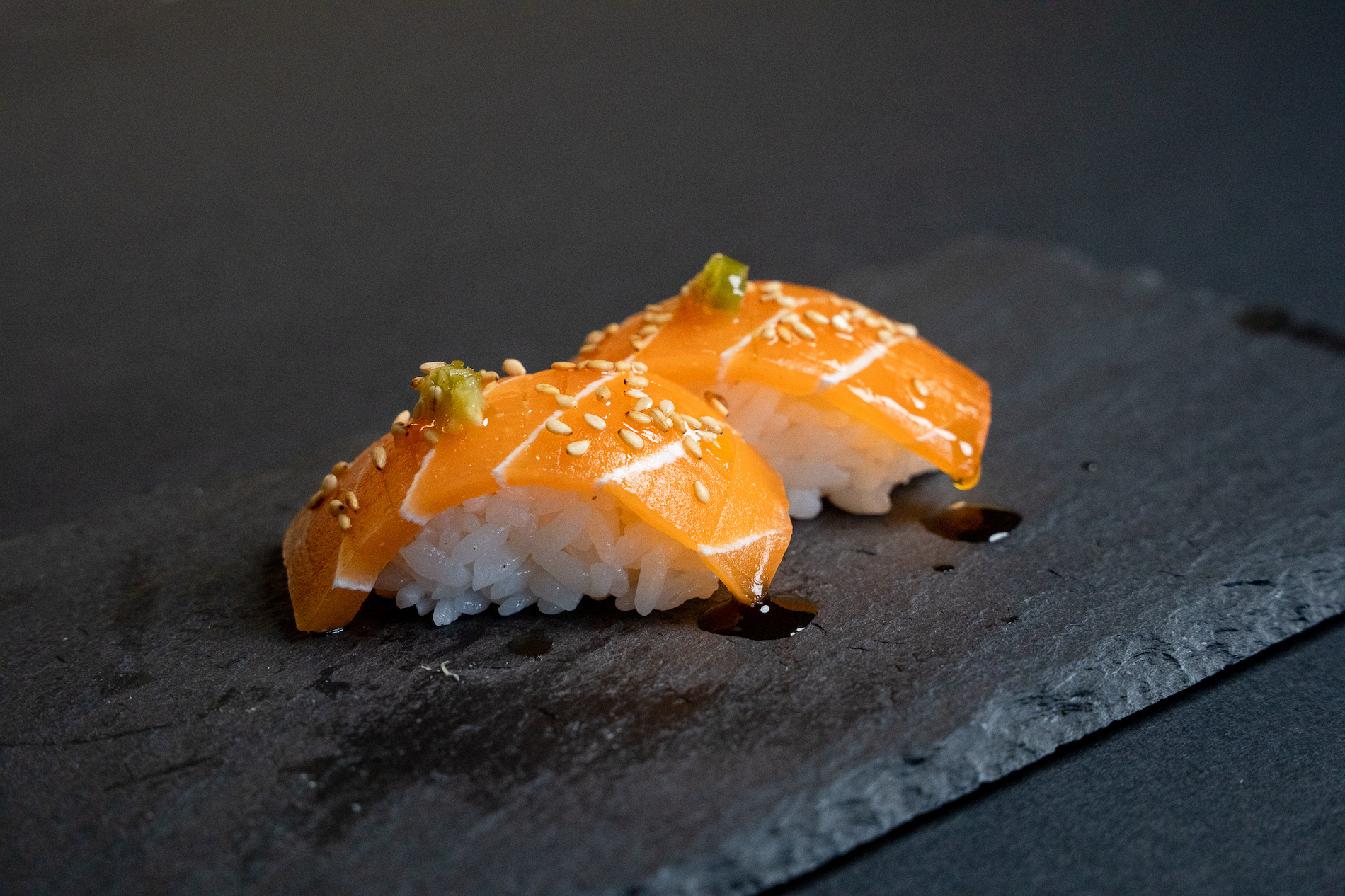
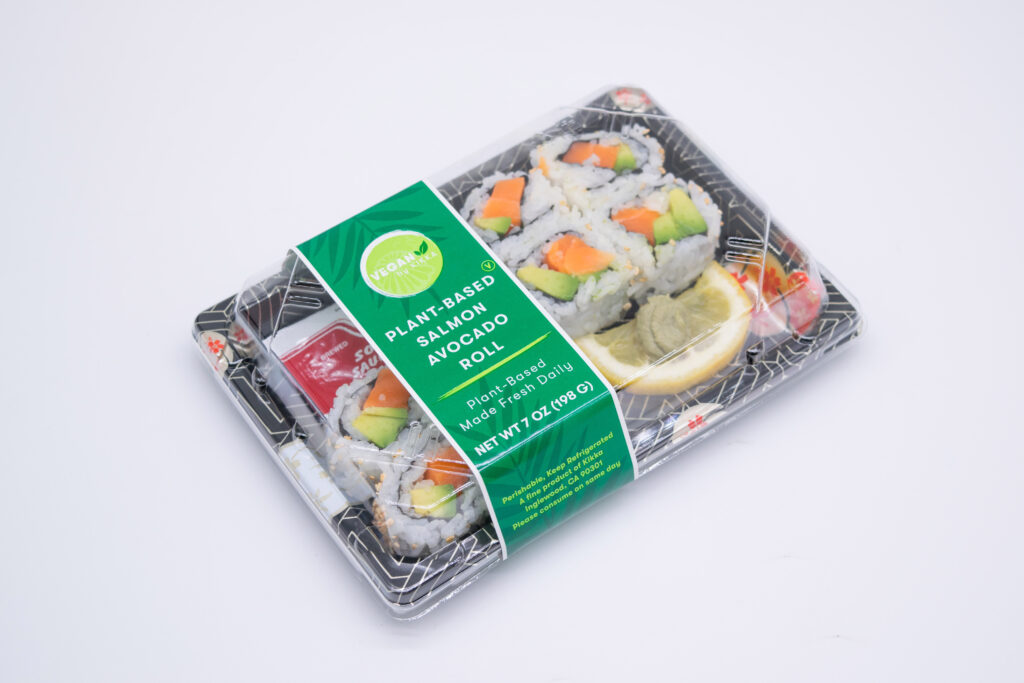
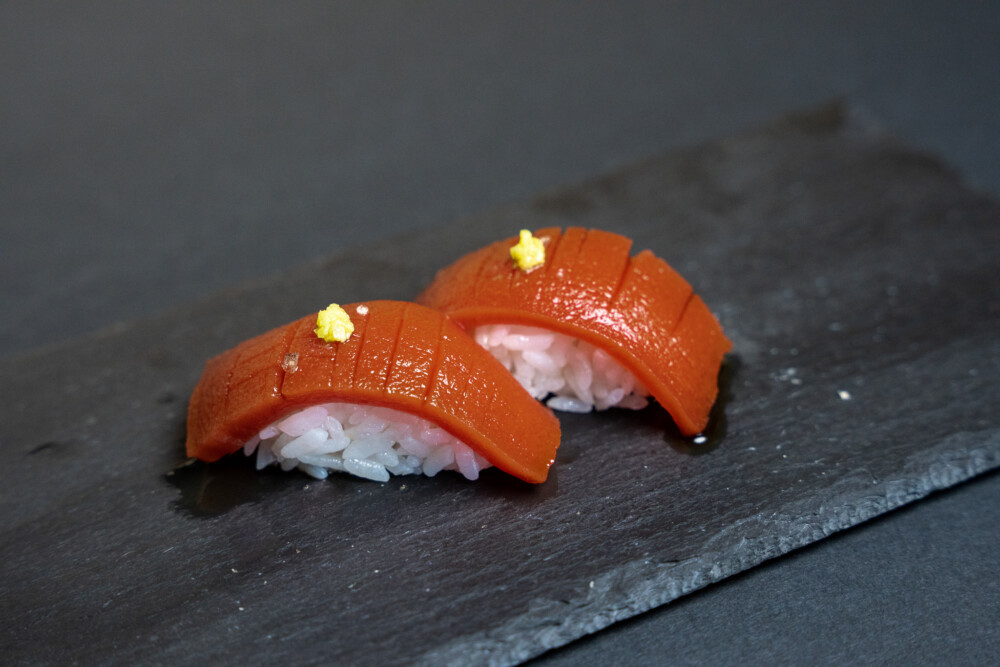
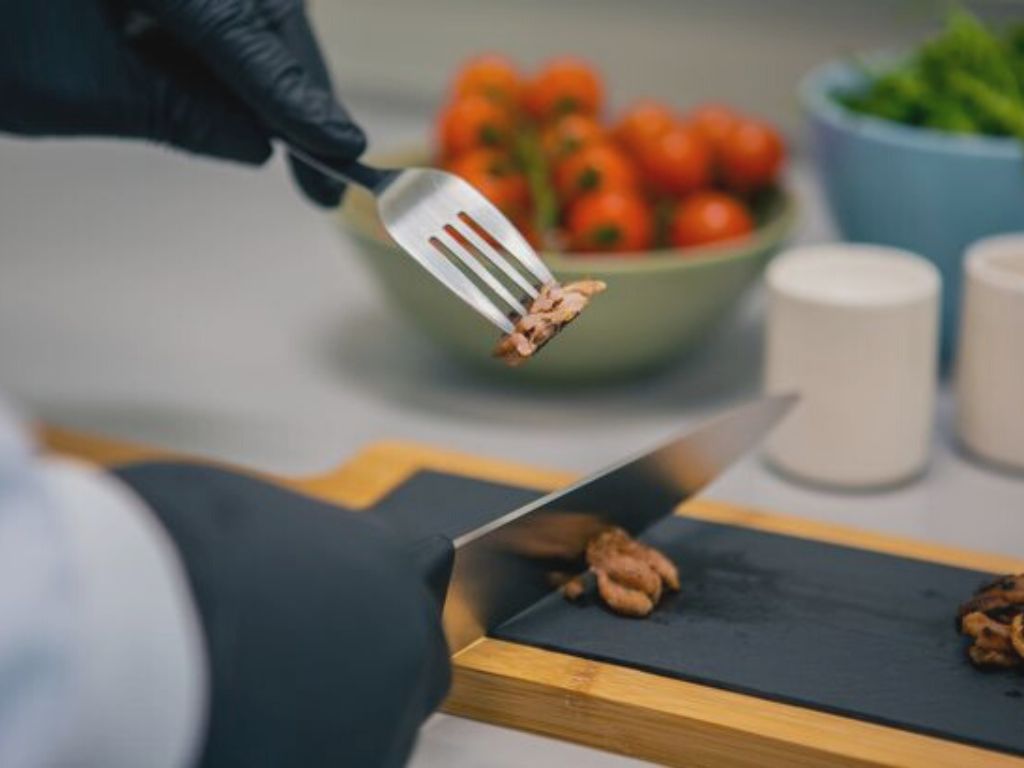
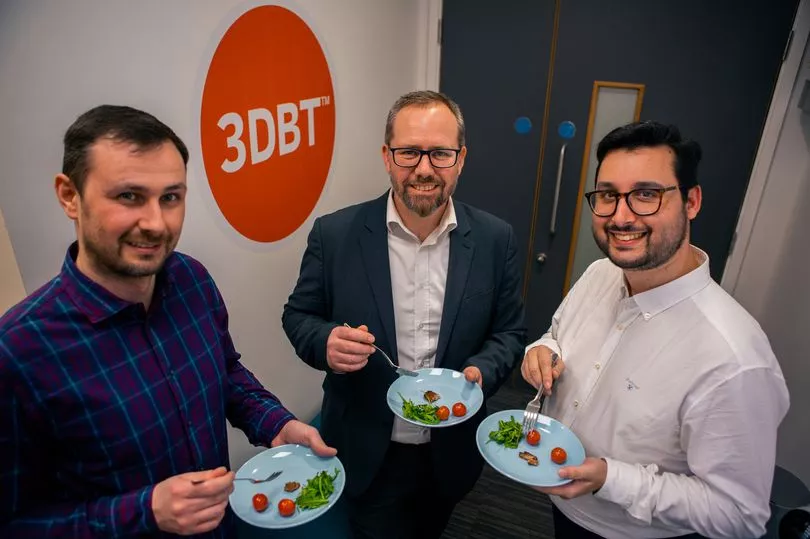
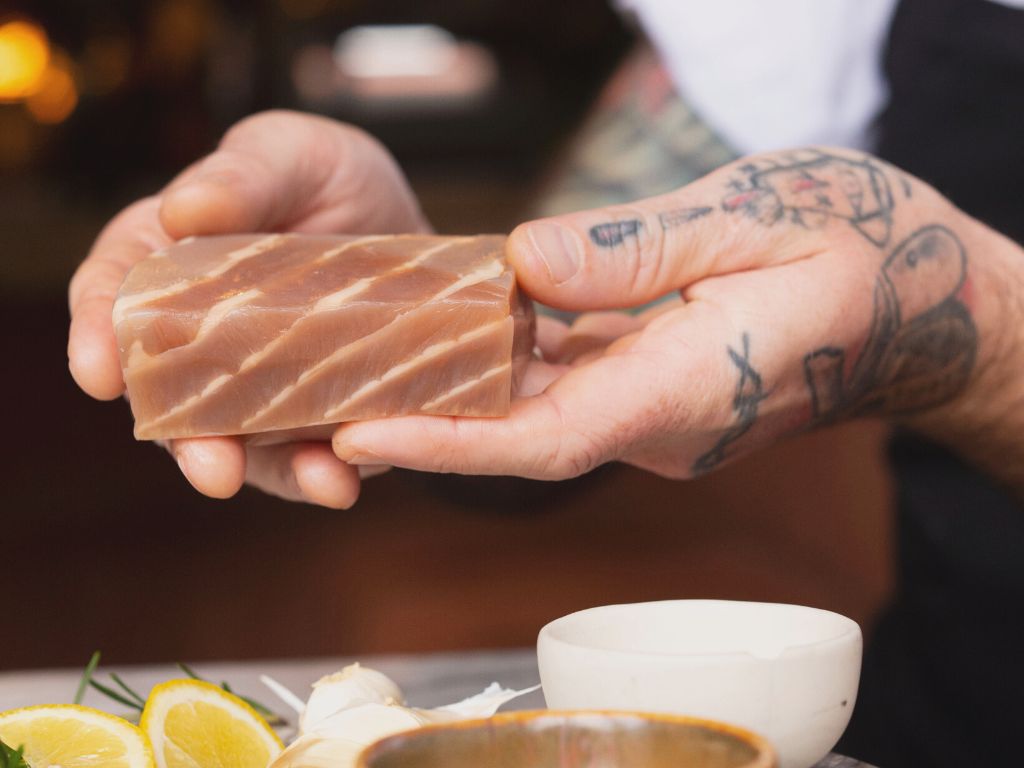
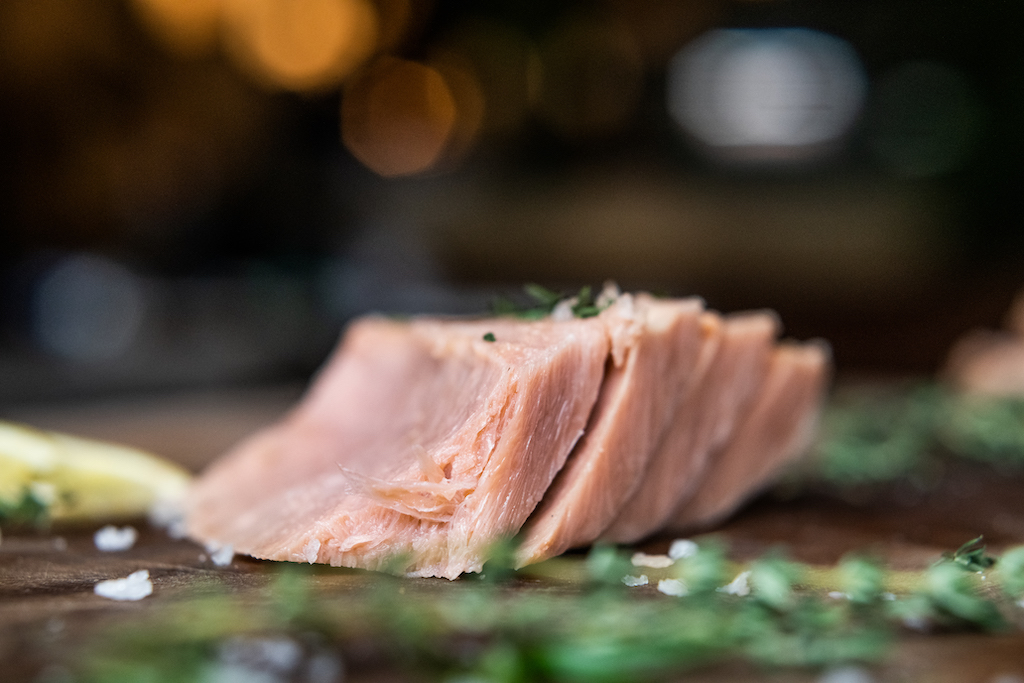
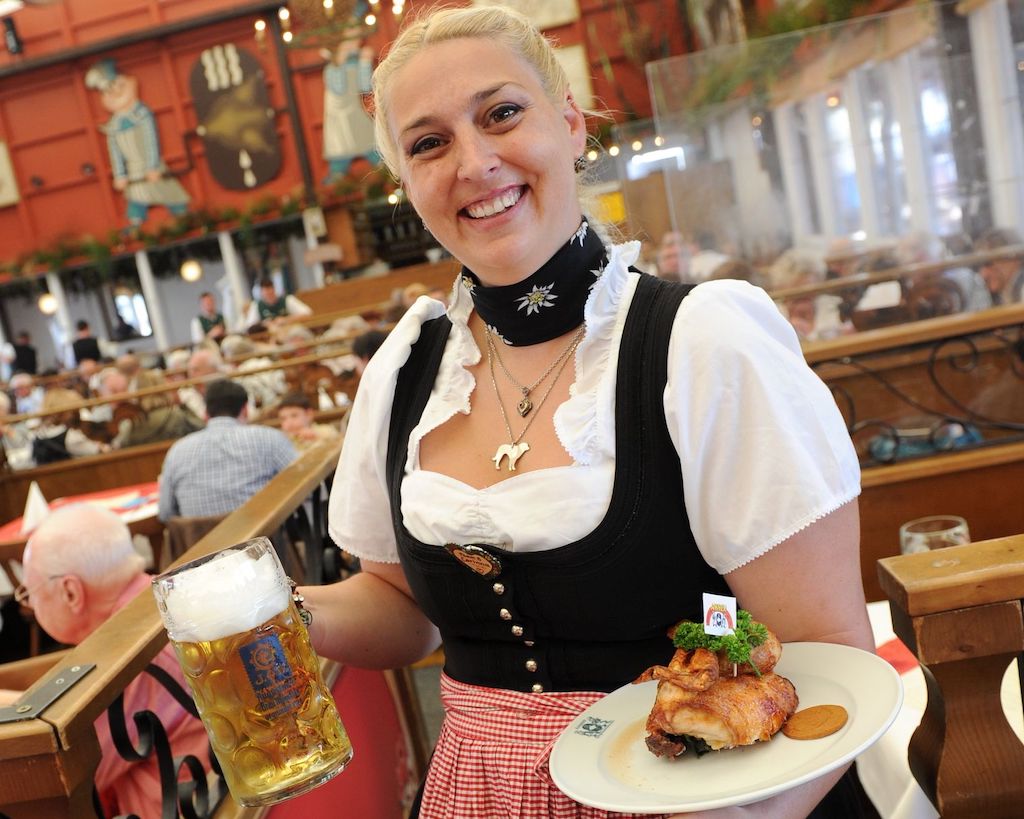
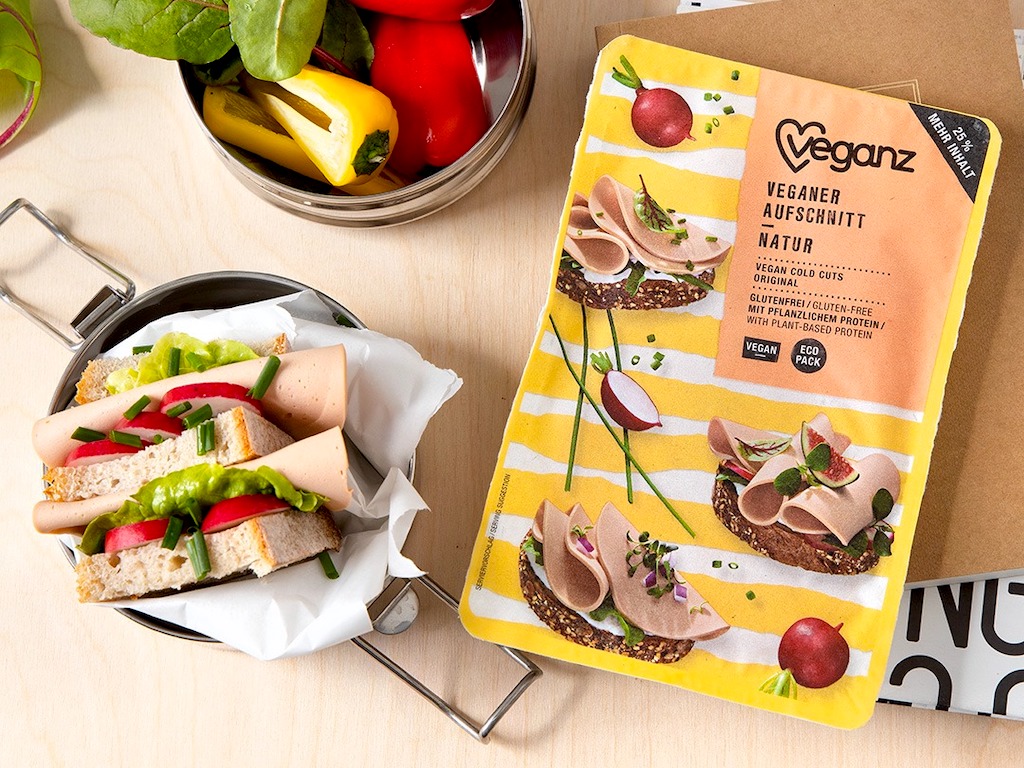
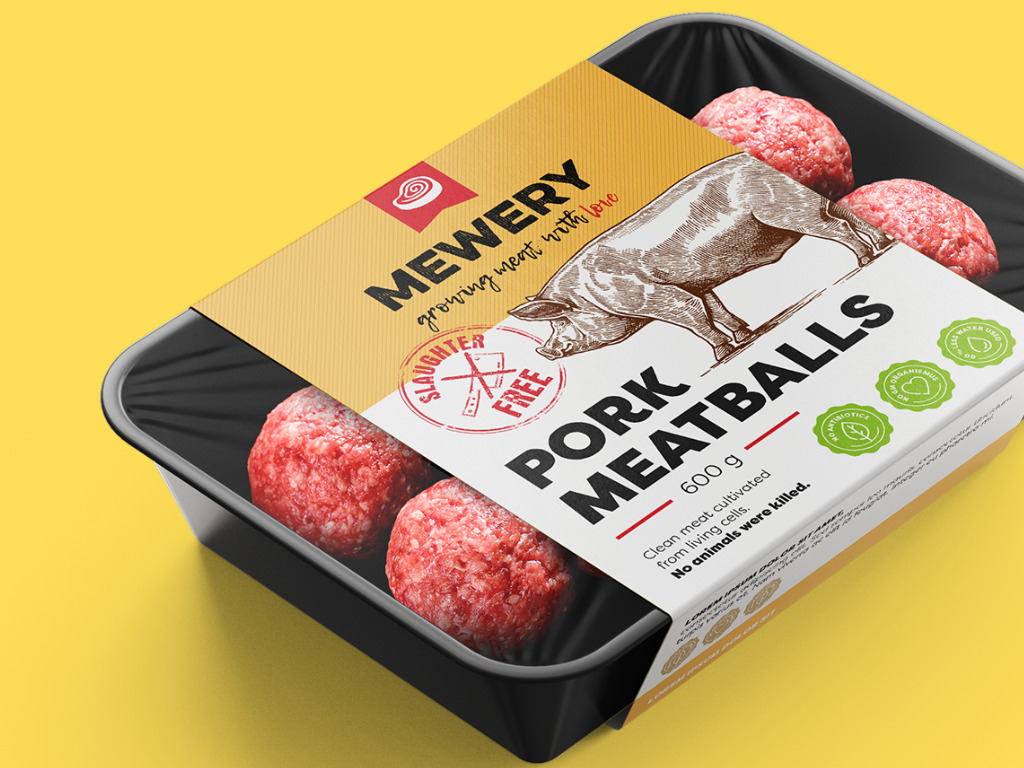
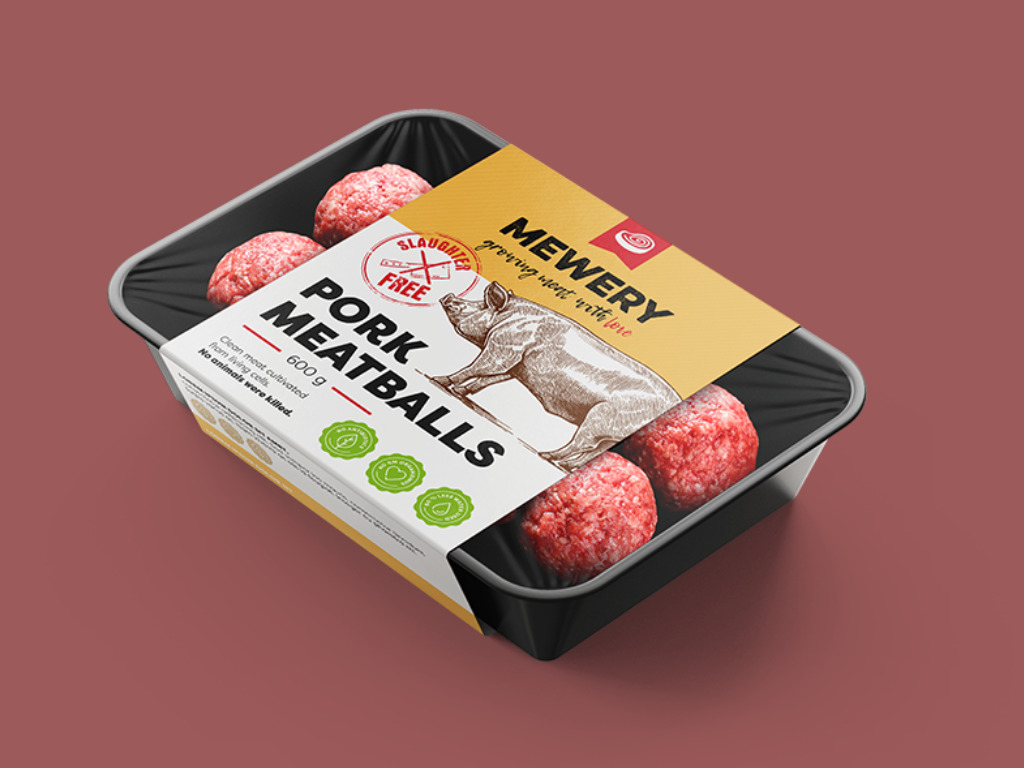
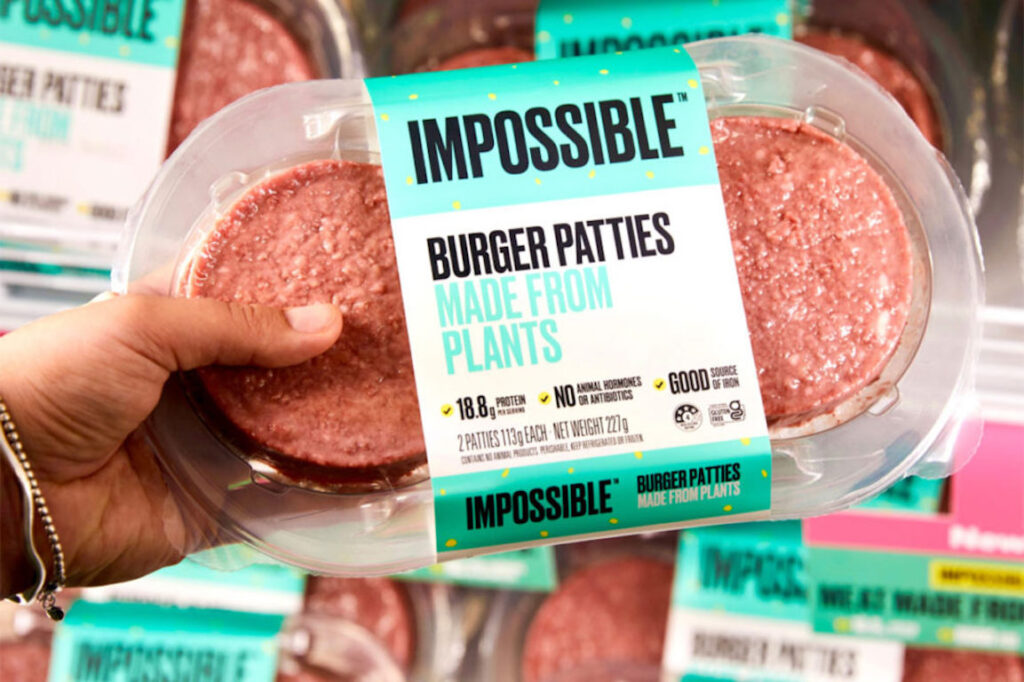




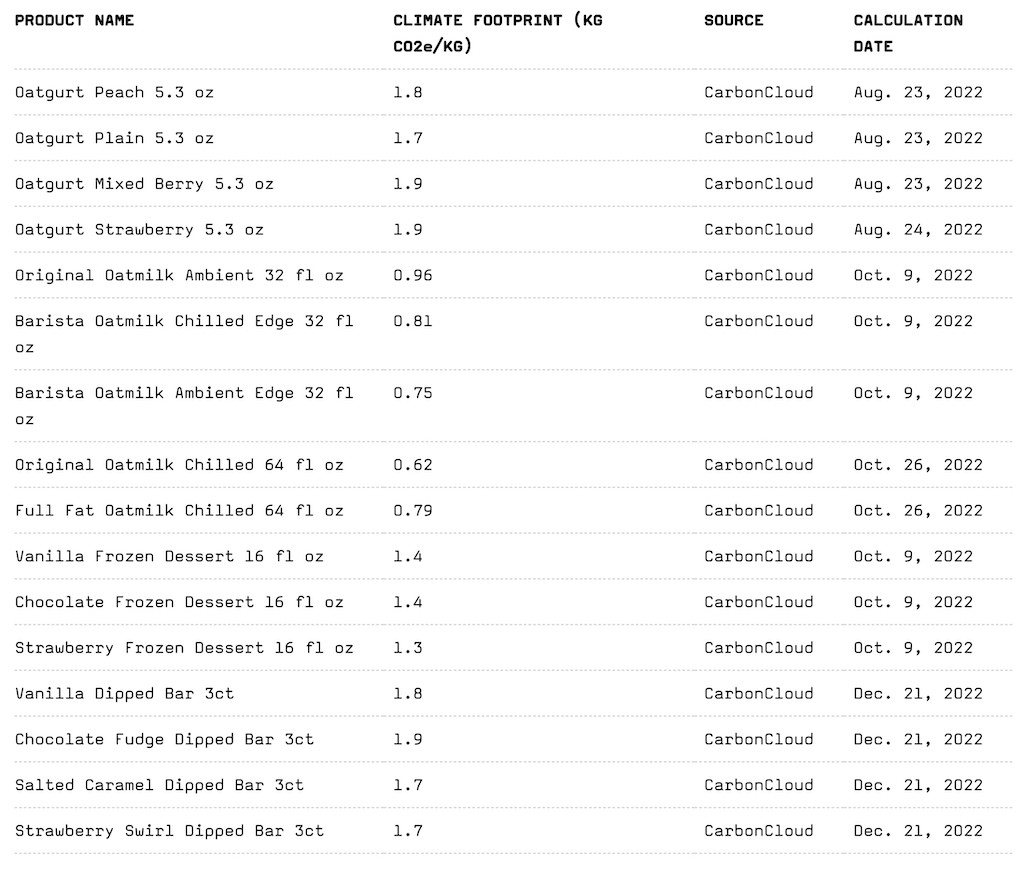
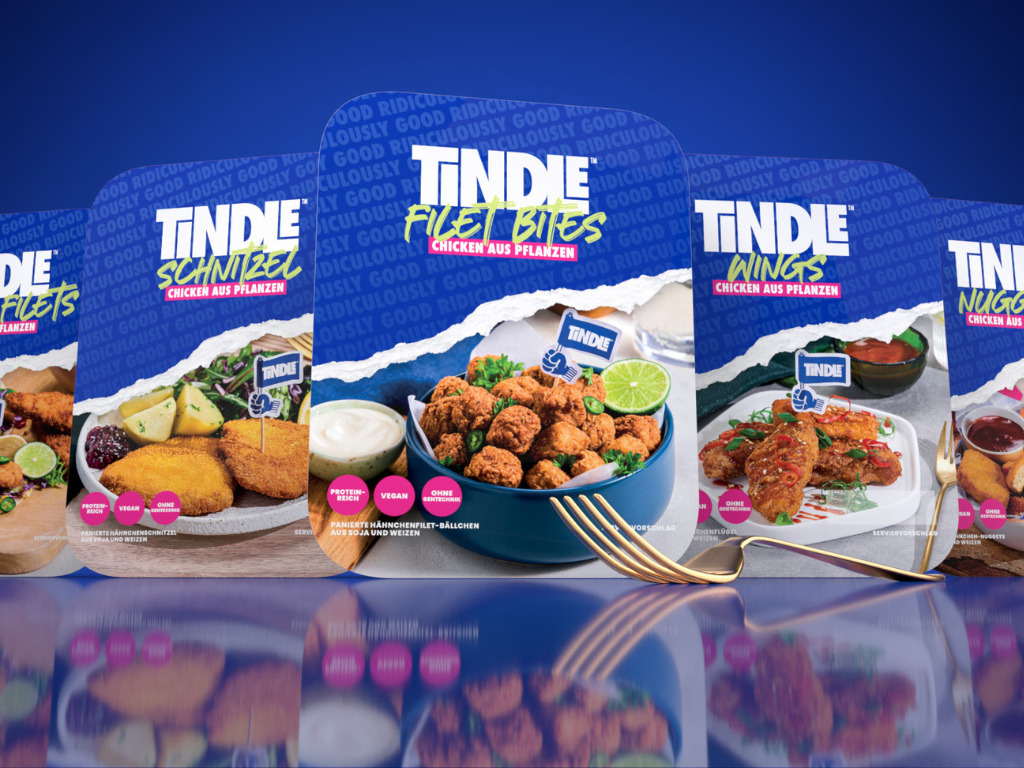
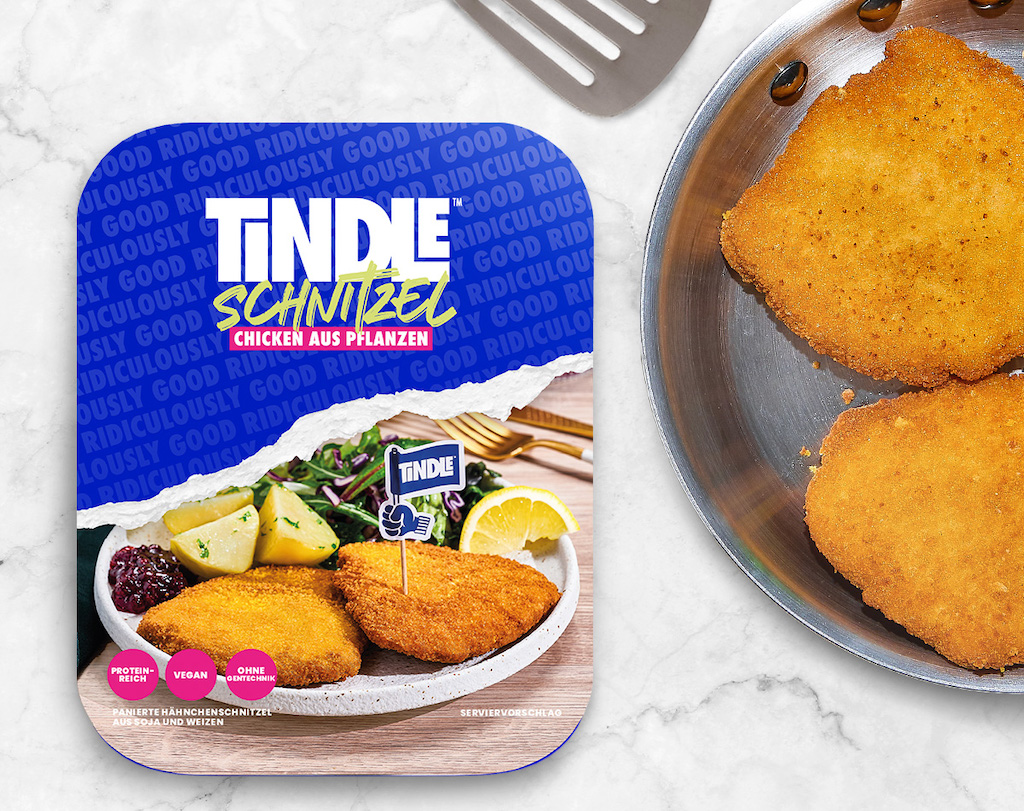
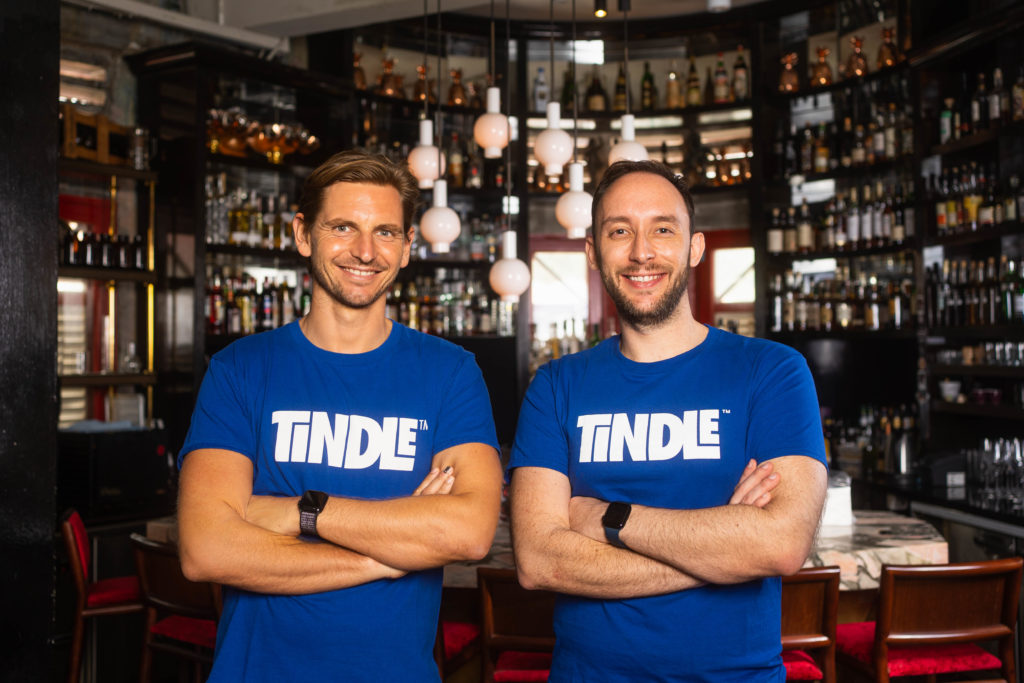
 , the company’s proprietary chicken-fat-like emulsion that contributes the aroma and savoriness of its animal counterpart.
, the company’s proprietary chicken-fat-like emulsion that contributes the aroma and savoriness of its animal counterpart.